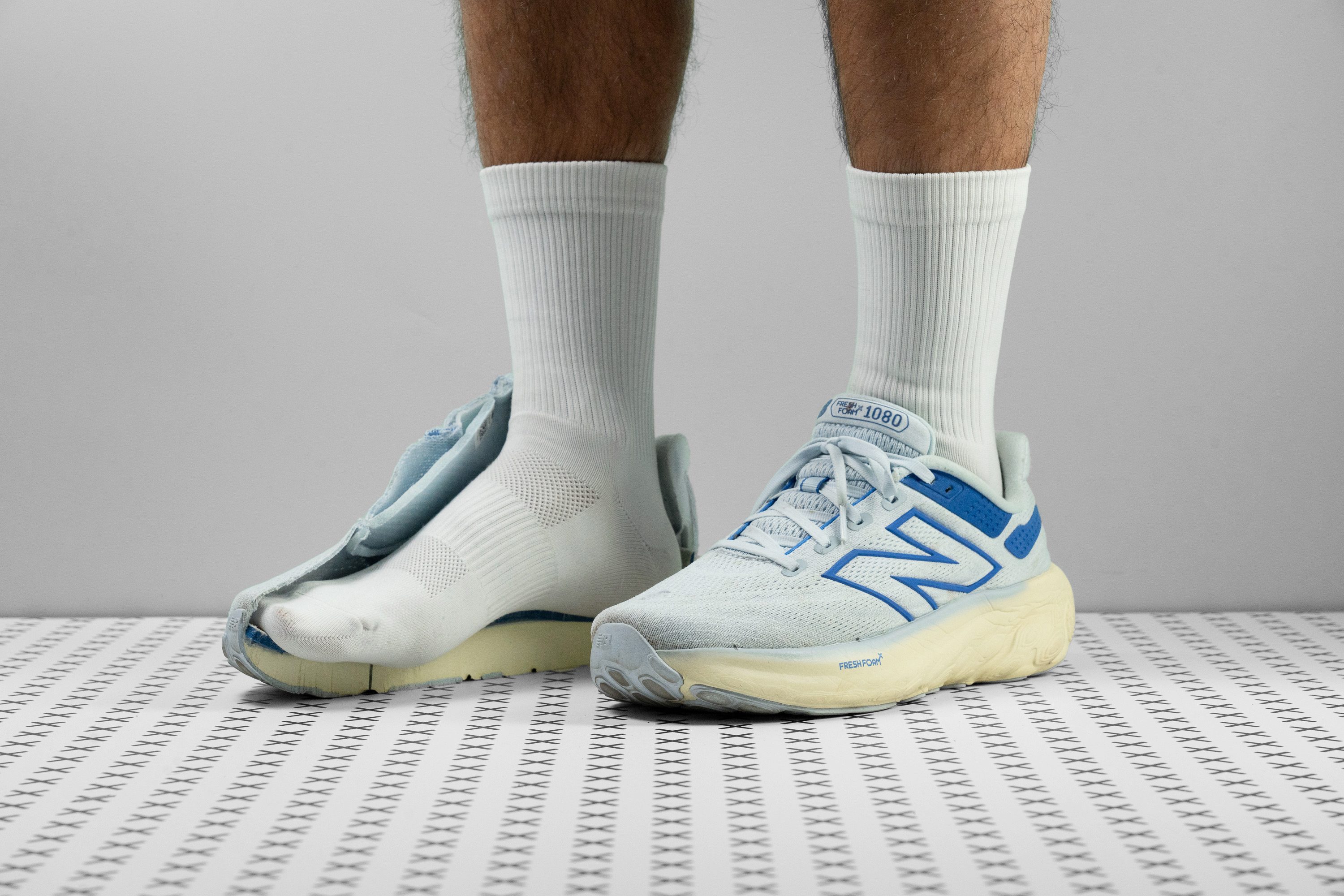Our verdict
- Top pick in best New Balance running shoes (2024)
Pros
- Exceptional comfort
- Outstanding breathability
- Incredibly soft ride
- Long-lasting outsole
- Lightweight for its size
- High-quality materials throughout the shoe
- Ideal for medium or long runs at a relaxed pace
- Suitable for a wide range of foot shapes
- Excellent ground bite
Cons
- The EVA-based midsole falls short in energy return
- Lacks stability
- Not suitable for quick-paced running
Audience verdict
- Top 27% in New Balance running shoes
- Top 29% in running shoes for narrow feet
- Top 10% most popular running shoes
Comparison
The most similar running shoes compared
+ + Add a shoe | |||||
|---|---|---|---|---|---|
| Audience score | 89 Great! | 86 Good! | 84 Good! | 84 Good! | |
| Price | $165 | $165 | $135 | $140 | |
| Pace | Daily running | Daily running | Daily runningTempo | Daily running | |
| Shock absorption | High | High | Moderate | Moderate | |
| Energy return | Moderate | Moderate | Low | Low | |
| Traction | High | High | High | Moderate | |
| Arch support | Neutral | Neutral | Neutral | Neutral | |
| Weight lab Weight brand | 9.3 oz / 264g 9.2 oz / 261g | 10.1 oz / 285g 10.5 oz / 298g | 7.7 oz / 217g 7.6 oz / 215g | 10.5 oz / 298g 11.1 oz / 314g | |
| Lightweight | ✗ | ✗ | ✓ | ✗ | |
| Drop lab Drop brand | 5.6 mm 6.0 mm | 4.2 mm 6.0 mm | 5.9 mm 5.0 mm | 5.2 mm 5.0 mm | |
| Strike pattern | Mid/forefoot | Mid/forefoot | Mid/forefoot | Mid/forefoot | |
| Size | True to size | True to size | Half size small | True to size | |
| Midsole softness | Soft | Soft | Soft | Balanced | |
| Difference in midsole softness in cold | Normal | Normal | Small | Normal | |
| Toebox durability | Decent | Good | Bad | Decent | |
| Heel padding durability | Good | Decent | Good | Good | |
| Outsole durability | Good | Good | Decent | Good | |
| Breathability | Breathable | Moderate | Breathable | Moderate | |
| Width / fit | Medium | Medium | Wide | Narrow | |
| Toebox width | Medium | Narrow | Wide | Narrow | |
| Stiffness | Moderate | Moderate | Moderate | Stiff | |
| Torsional rigidity | Flexible | Stiff | Stiff | Moderate | |
| Heel counter stiffness | Stiff | Stiff | Moderate | Stiff | |
| Rocker | ✓ | ✓ | ✗ | ✗ | |
| Heel lab Heel brand | 34.1 mm 37.0 mm | 37.0 mm 38.0 mm | 32.8 mm 34.5 mm | 33.2 mm 30.0 mm | |
| Forefoot lab Forefoot brand | 28.5 mm 31.0 mm | 32.8 mm 32.0 mm | 26.9 mm 29.5 mm | 28.0 mm 25.0 mm | |
| Widths available | NarrowNormalWideX-Wide | NarrowNormalWideX-Wide | Normal | Normal | |
| Orthotic friendly | ✓ | ✓ | ✓ | ✓ | |
| Season | SummerAll seasons | All seasons | SummerAll seasons | All seasons | |
| Removable insole | ✓ | ✓ | ✓ | ✓ | |
| Ranking | #221 Top 33% | #181 Top 48% | #255 Bottom 33% | #237 Bottom 38% | |
| Popularity | #67 Top 10% | #5 Top 2% | #134 Top 35% | #55 Top 15% |
Who should buy
We determined that the New Balance Fresh Foam X 1080 v13 is an excellent choice for:
- Neutral runners who crave the ultimate softness in their shoes, as this model tops the charts as the plushest daily trainer available.
- Those looking for a long-lasting and trustworthy trainer crafted with top-notch, comfortable materials.
- Beginners seeking a single, ultra-comfortable shoe to kickstart their running journey.
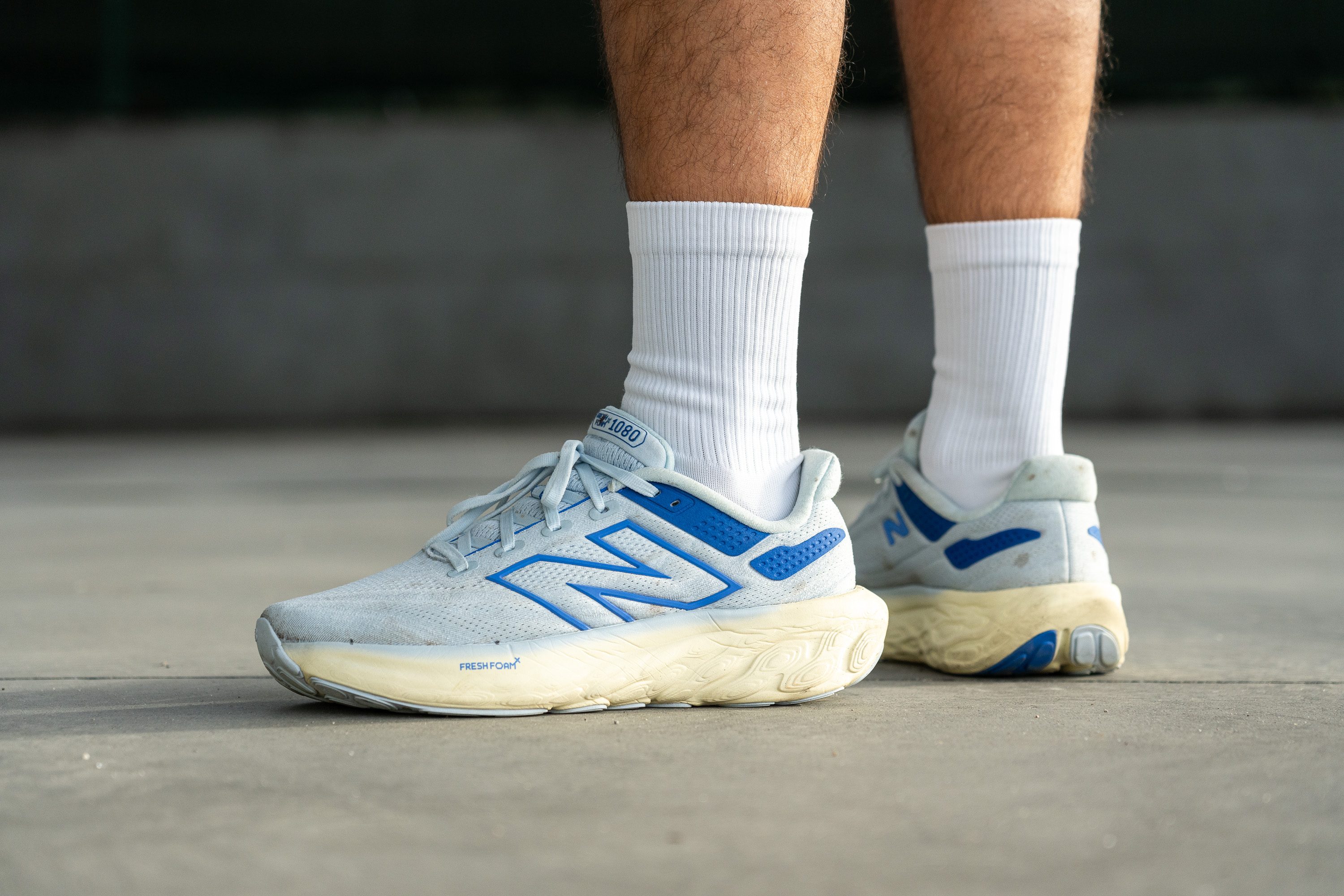
Who should NOT buy
The 1080 v13 showcases some impressive strengths, yet it falls short in energy return due to its EVA midsole. For runners seeking a more dynamic bounce with each step, we suggest exploring options like the ASICS Superblast or the Nike Invincible 3.
Moreover, the 1080 v13 doesn't offer much in terms of stability, making it a fit primarily for neutral runners who possess solid, straight running technique. For those facing even mild stability issues, we recommend a more supportive experience in stable daily trainers such as the ASICS GT 2000 12 or the ASICS Gel Kayano 30.
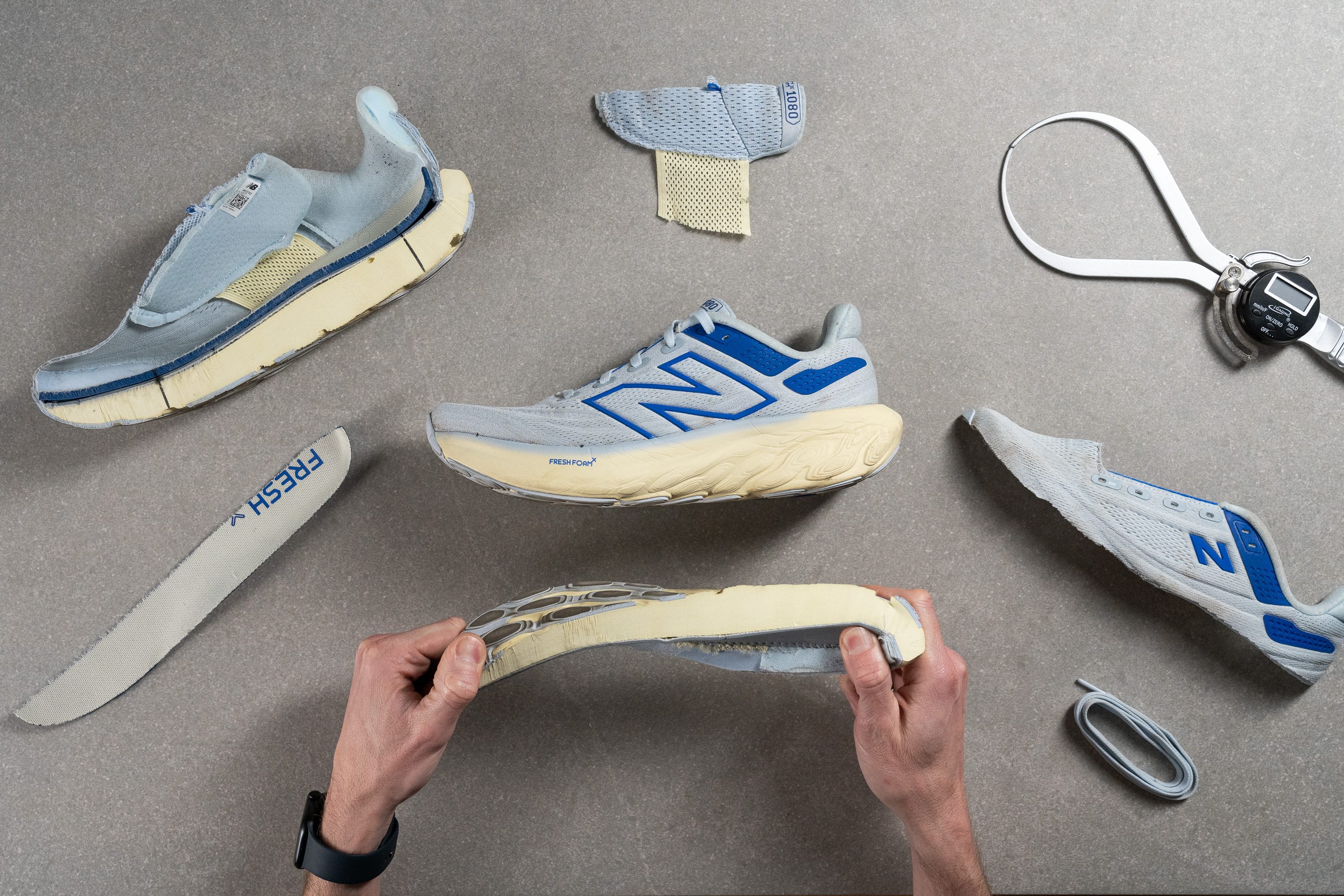
Cushioning
Shock absorption
The New Balance Fresh Foam X 1080 v13 gets a full design reboot, shifting from an average daily trainer to a max-cushioned powerhouse. We tested it in the lab to confirm the claims... and the numbers are here, with a staggering 148 SA in the heel and 121 SA in the forefoot.
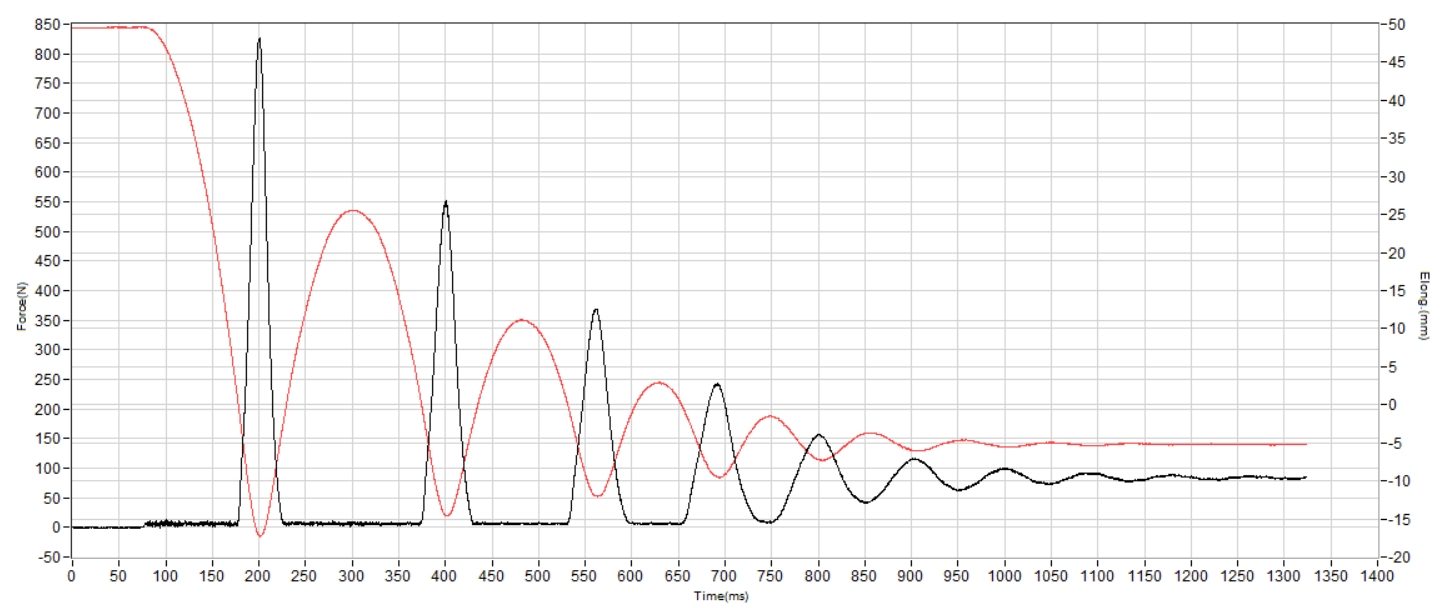
| Fresh Foam X 1080 v13 | 148 SA |
| Average | 130 SA |
Energy return
Energy return improved slightly, but since this is still an EVA-based foam, we didn’t expect a major leap. That said, 58.0% in the heel and 60.1% in the forefoot is actually a solid result for this type of material. Just don’t expect much bounce—this ride is more about soft, plush comfort.
| Fresh Foam X 1080 v13 | 58.0% |
| Average | 58.6% |
Heel stack
Now let's talk about the stack height. In the heel, it measures 34.1 mm, which is very reasonable for a cushioned daily trainer.
For easy or aerobic runs over short to medium distances, this is all you need, despite the current trend of packing in as much foam as possible. And yes, you can definitely handle a long run with this heel stack.
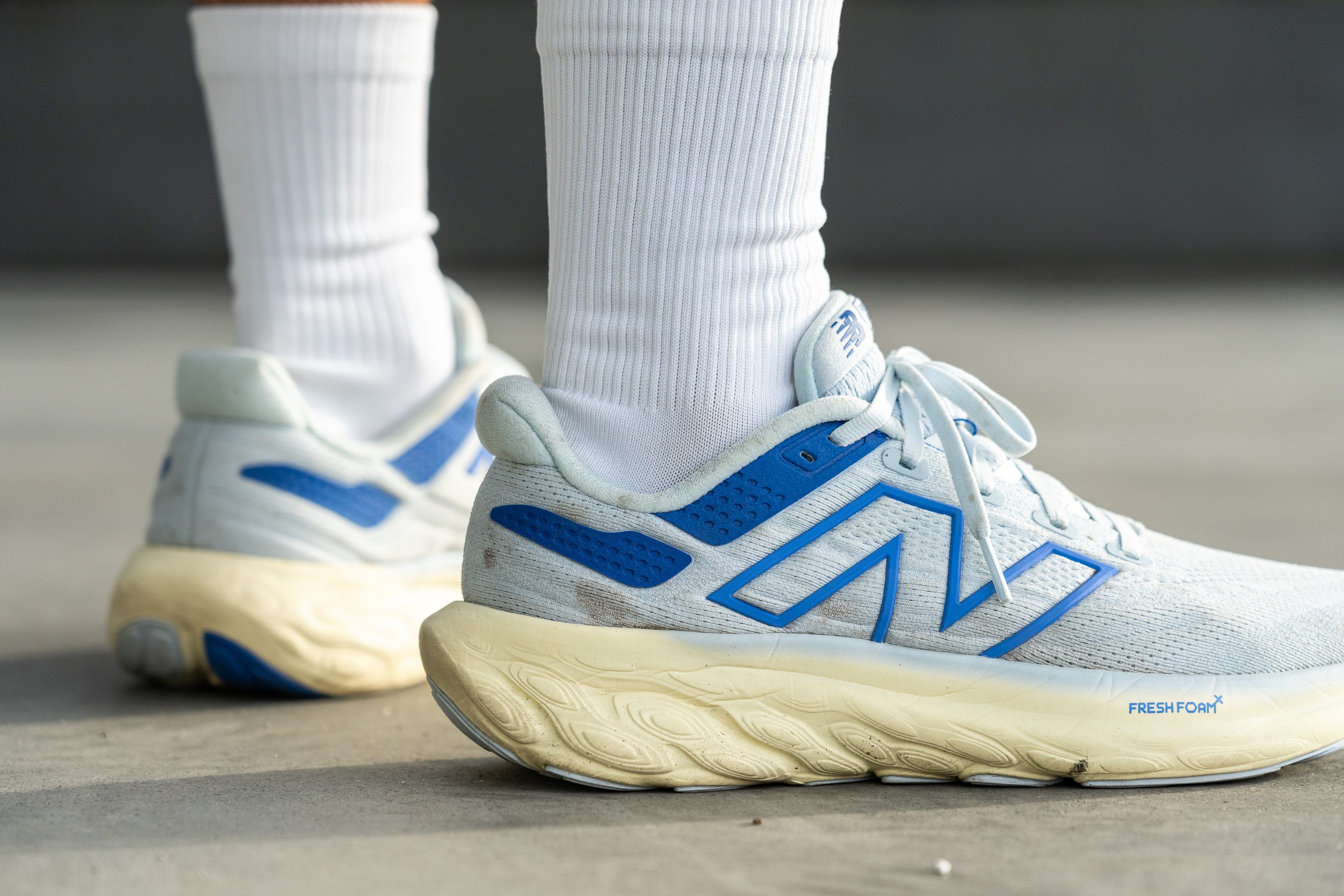
It's important to remember that a daily trainer should be versatile enough for a variety of runs. It should be agile and nimble, serving as a do-it-all shoe for those who prefer a single pair in their rotation. That's why we believe this approach is spot-on for this type of shoe.
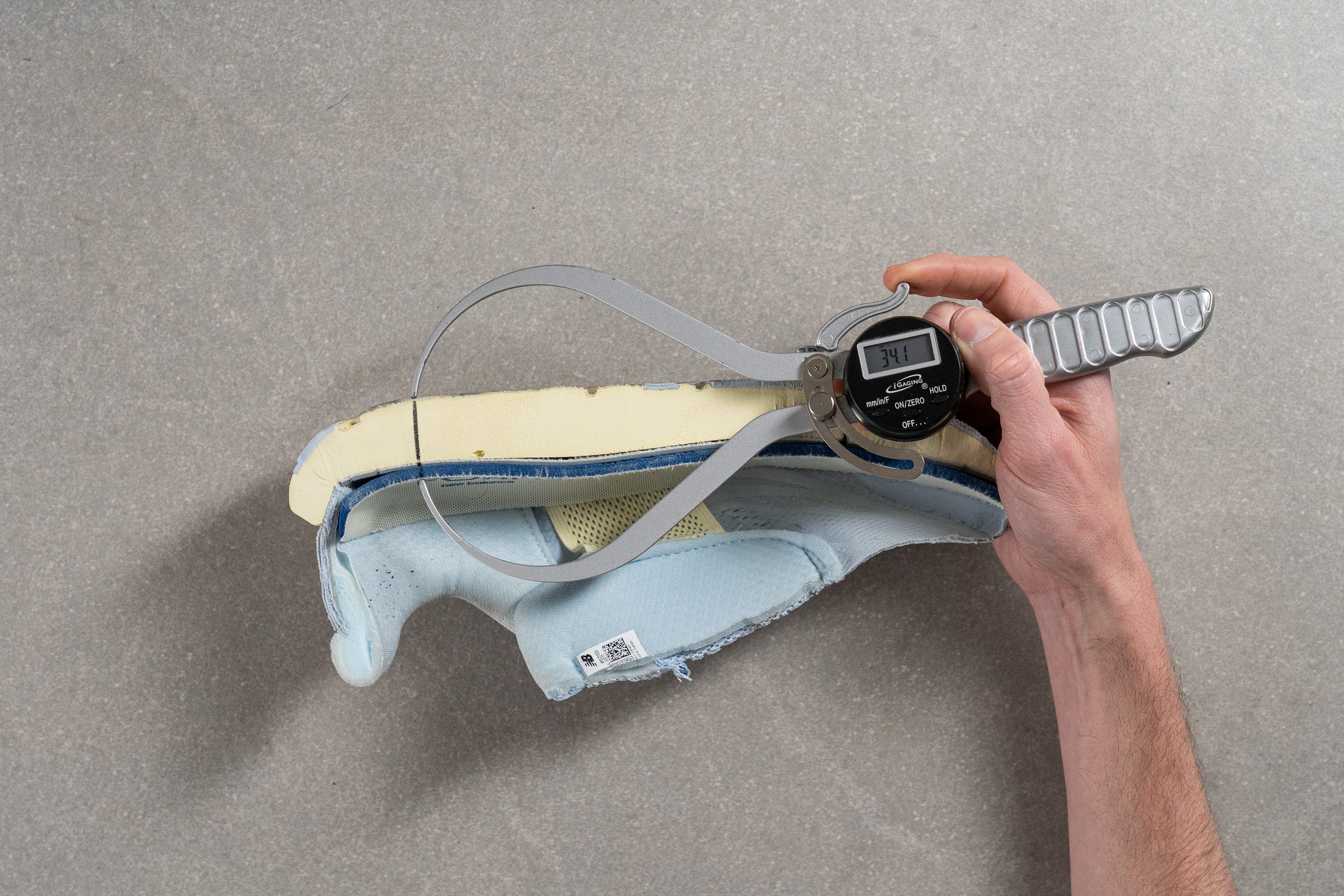
| Fresh Foam X 1080 v13 | 34.1 mm |
| Average | 34.8 mm |
Forefoot stack
The forefoot features a moderately-high design, offering ample cushioning at 28.5 mm, ideal for both midfoot and forefoot strikers.
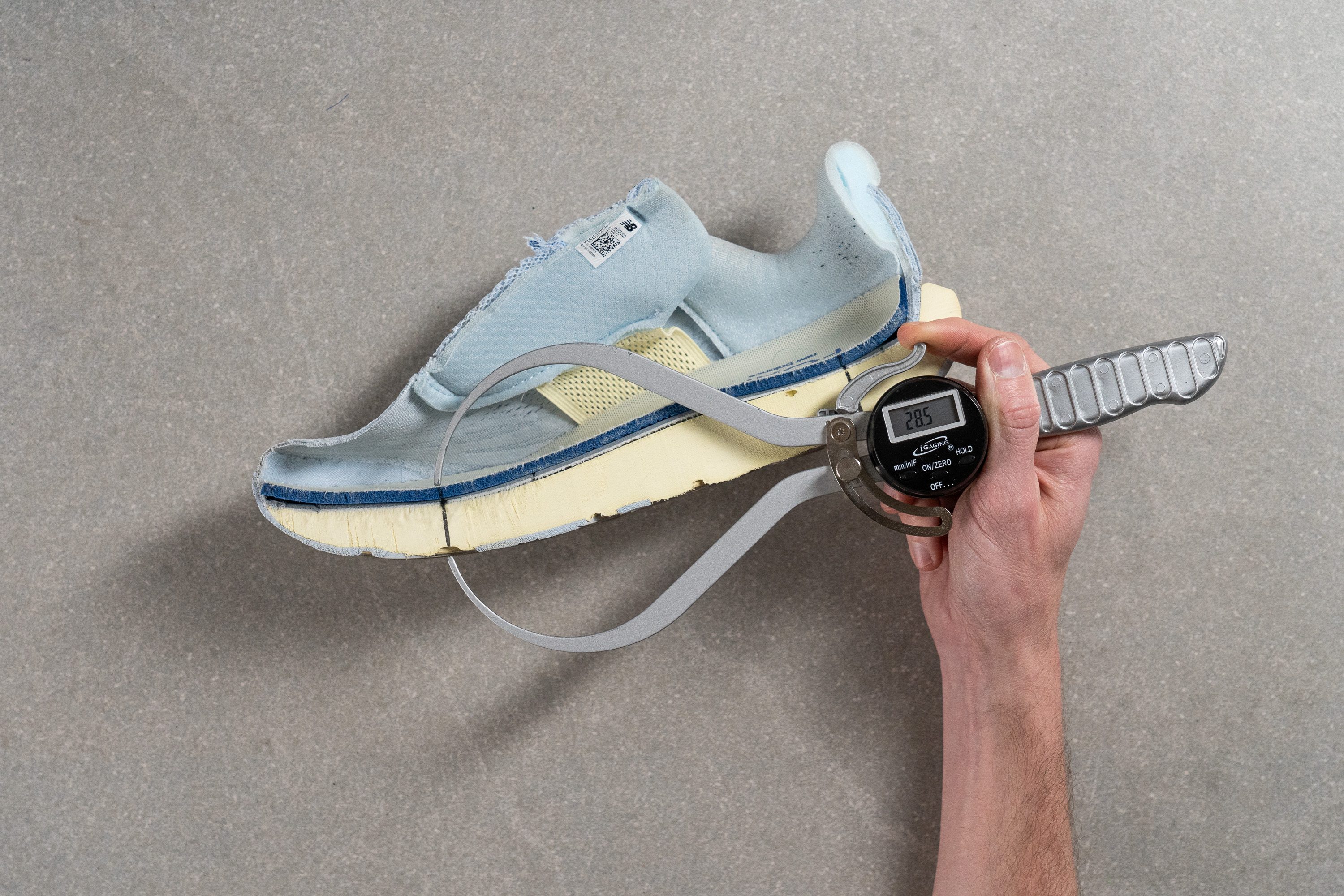
| Fresh Foam X 1080 v13 | 28.5 mm |
| Average | 26.2 mm |
Drop
New Balance claims a 6-mm drop, and we measured it at 5.6 mm following the official World Athletics guidelines. Kudos to New Balance for providing measurements close to reality, a rarity among brands.
This means the shoe is more suited for forefoot and midfoot strikers. However, heel strikers can still use it, but they should be comfortable with a shoe that has a lower drop than what's typical for daily trainers. If that's not your preference, we suggest checking out the Nike Pegasus 40.
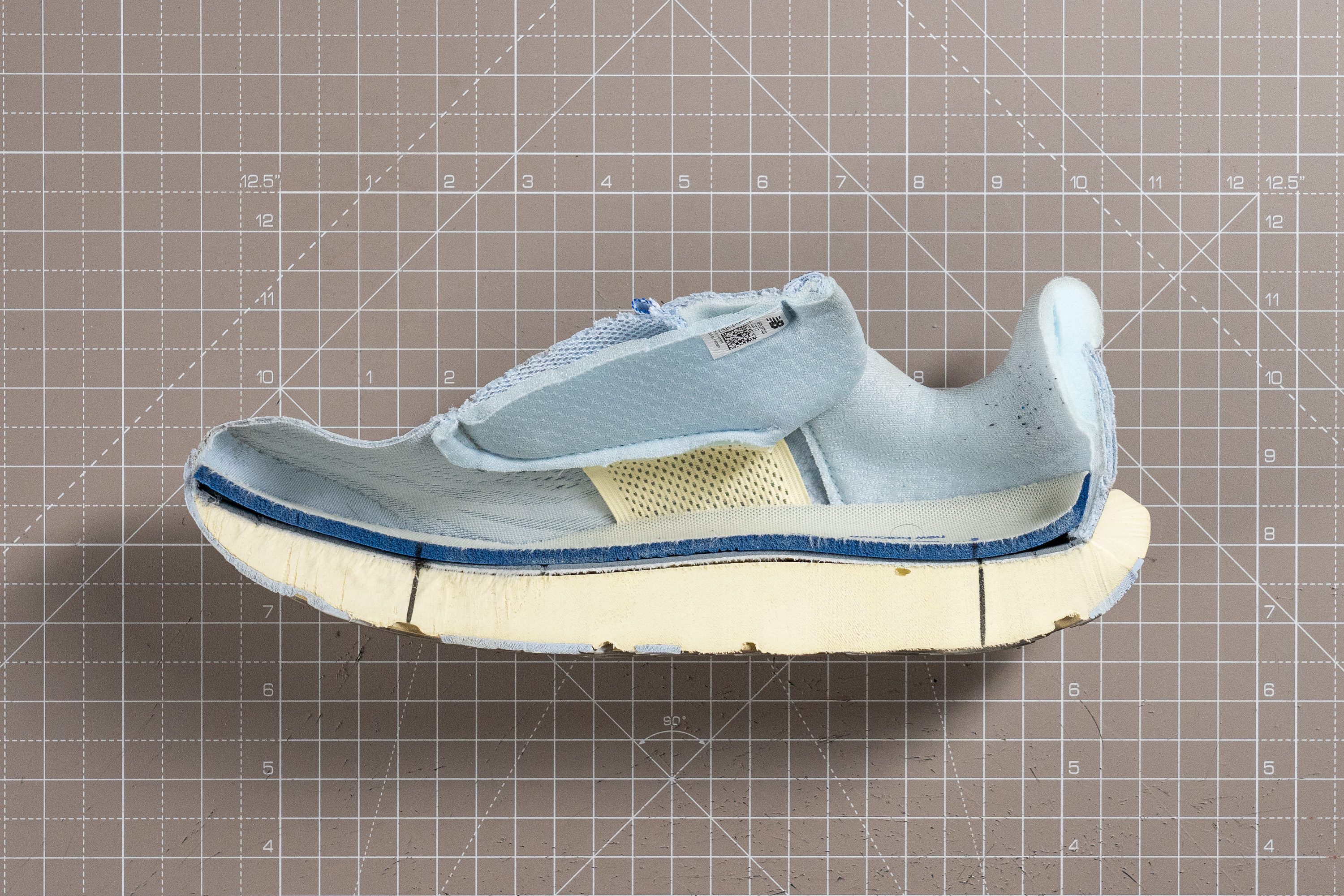
| Fresh Foam X 1080 v13 | 5.6 mm |
| Average | 8.6 mm |
Midsole softness
Let's dive into the most game-changing update in the 1080 v13. While it's still labeled as "Fresh Foam X", New Balance has revamped the formula, creating an out-of-this-world softness.
After testing over 300 shoes in the lab, we found very few that could rival this one's marshmallow-like feel.
Driven to quantify our experience, we used the Shore A durometer and recorded a 10.0 HA measurement, solidifying our initial thoughts. It's like running on a feather pillow.
The standout feature is the mind-blowingly-incredible comfort in every step. There's no arguing about it. However, this new Fresh Foam X is still an EVA midsole, which means the energy return is somewhat limited—you sink into the foam, but it doesn’t spring you back much.
This characteristic makes the shoe ideal for easy runs or days when your feet crave the ultimate comfort. But for faster paces, we think the shoe is too mushy.
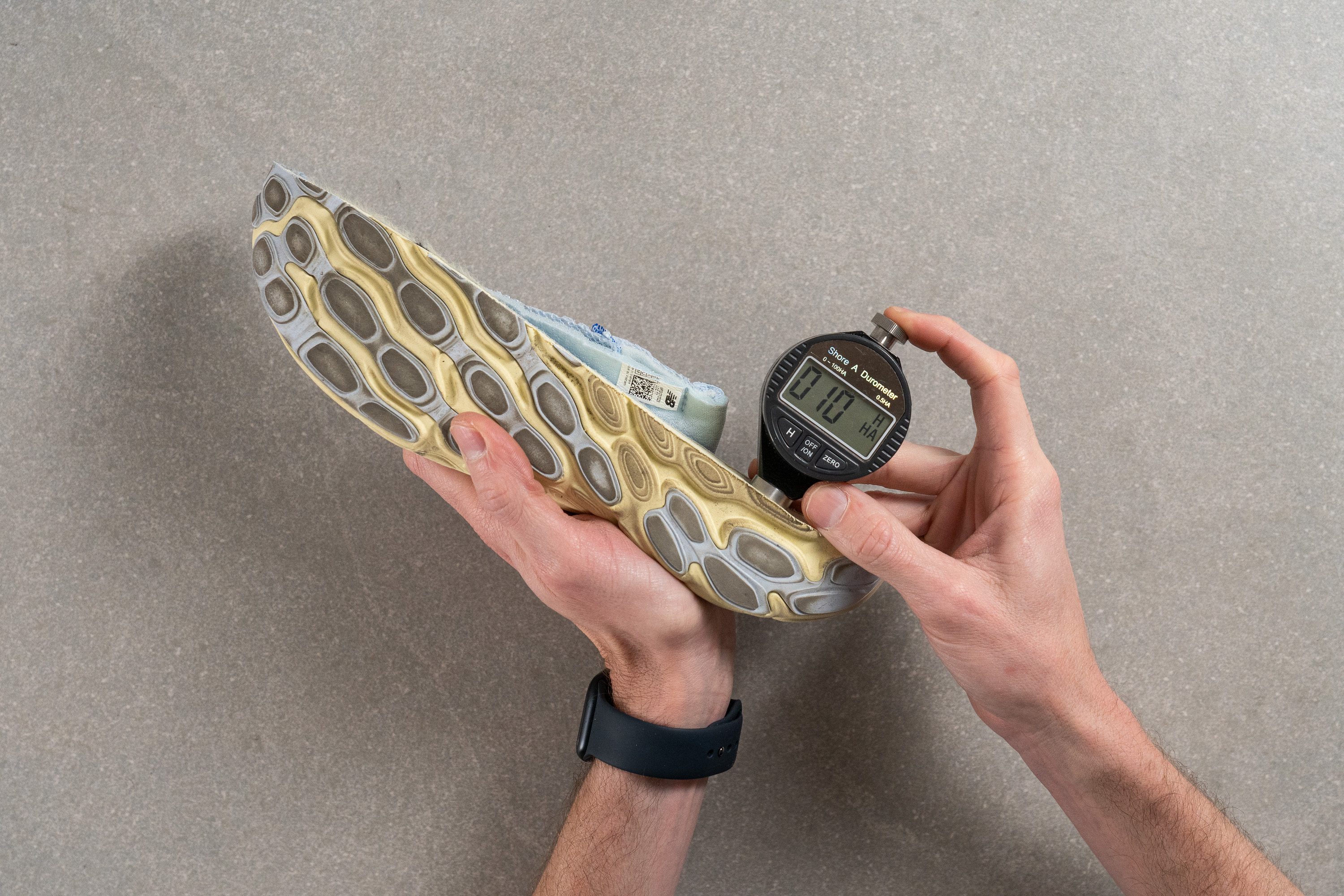
| Fresh Foam X 1080 v13 | 10.0 HA |
| Average | 20.4 HA |
Size and fit
Size
New Balance Fresh Foam X 1080 v13 fits true to size (244 votes).
Internal length
| Fresh Foam X 1080 v13 | 273.2 mm |
| Average | 269.4 mm |
Toebox width - widest part
One of the advantages of knit uppers is their ability to stretch after a few runs. Yet, the 1080 v13 likely won't need to rely on this feature because it provides a regular fit that's slightly on the roomier side.
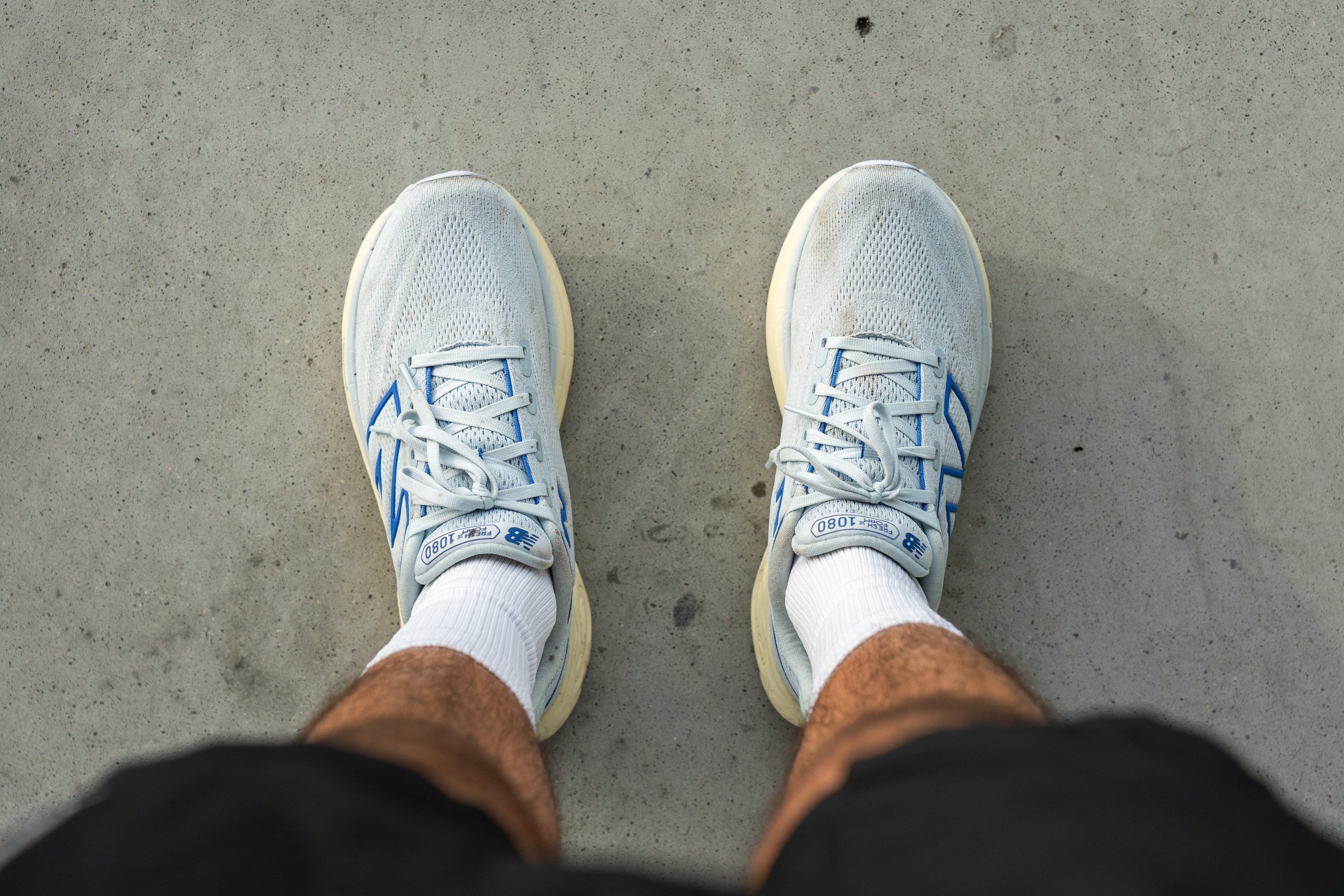
When we measured the widest part of the upper, it came in at 99.7 mm.
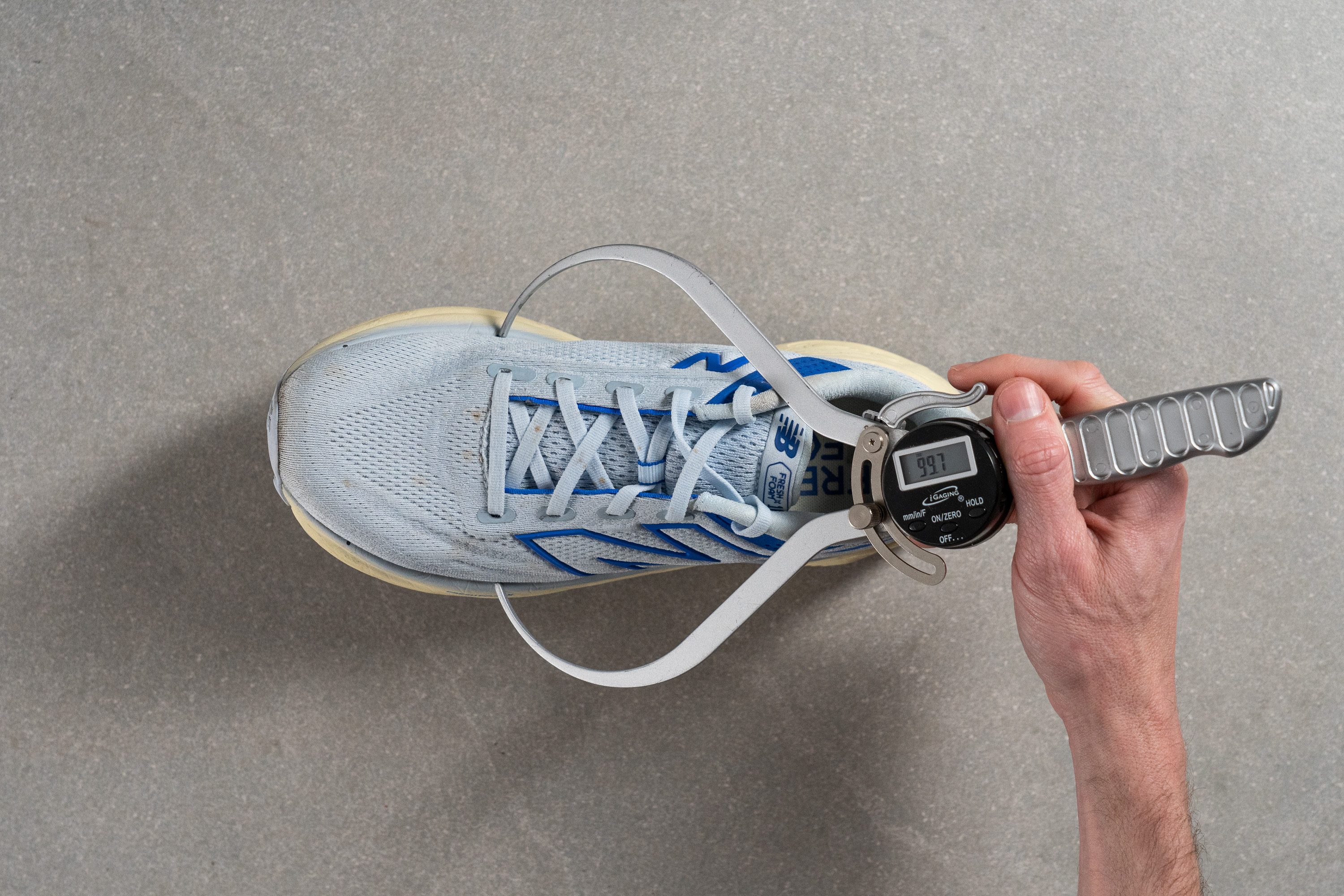
This test follows an older methodology, which is why you don't see recently tested shoes in the chart. Results from different methodologies can not be compared.
| Fresh Foam X 1080 v13 | 99.7 mm |
| Average | 98.5 mm |
Toebox width - big toe
Our second measurement focused on the big toe area, coming in at 77.9 mm. This is pretty much average, indicating that New Balance chose a safe taper, which is sensible for a daily running shoe.
By the way, those with wide should now that the brand offers the 1080 in three widths: regular, wide, and extra-wide (in some markets).
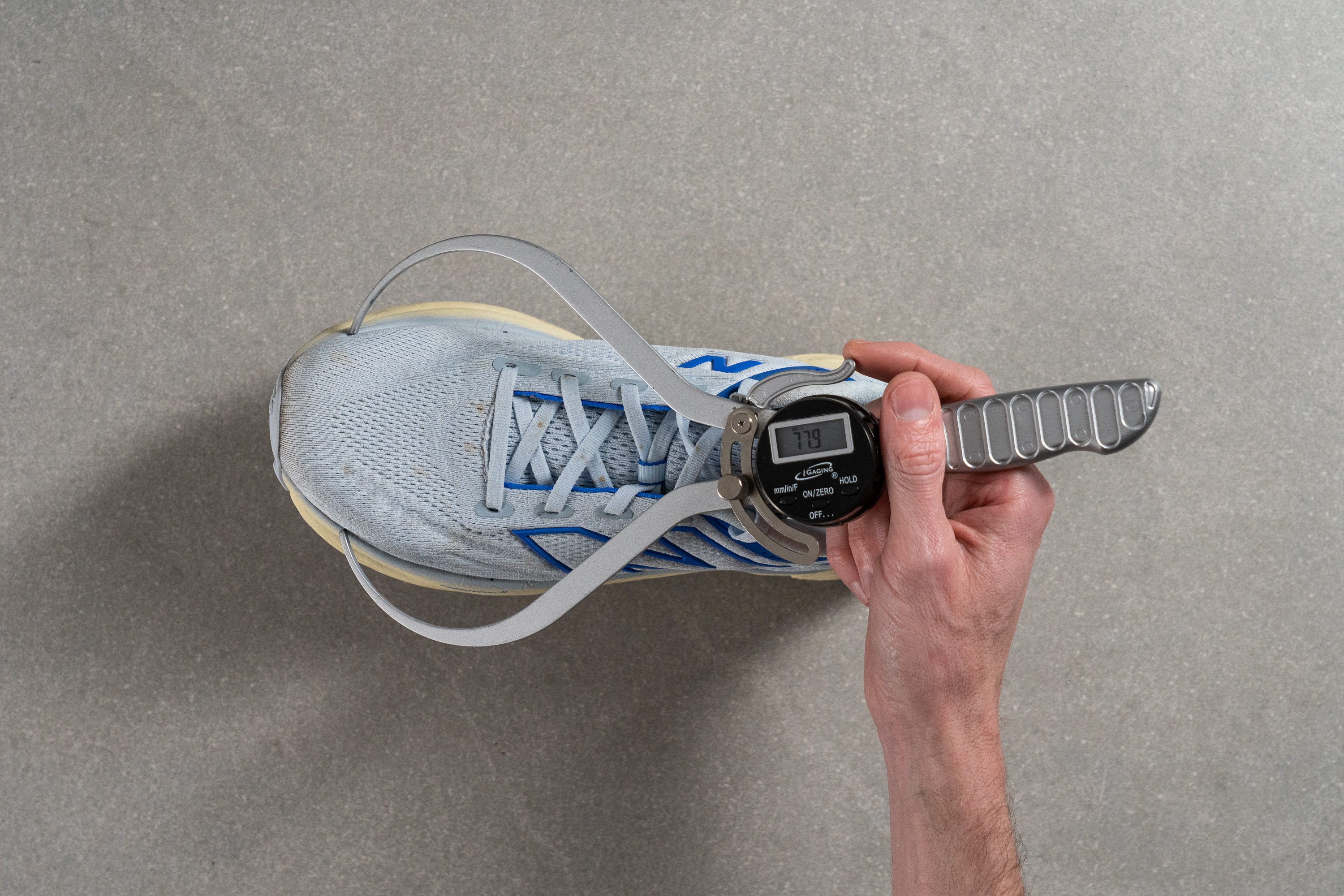
This test follows an older methodology, which is why you don't see recently tested shoes in the chart. Results from different methodologies can not be compared.
| Fresh Foam X 1080 v13 | 77.9 mm |
| Average | 78.4 mm |
Traction / Grip
Traction test
Seeing so much exposed foam on the shoe's outsole, we were concerned about its gripping capacity, specifically on wet surfaces. But gladly, there is nothing to worry about as the NB 1080 v13 gripped wet concrete well enough for a road running shoe.
Our SATRA TM144 grip test confirmed this experience with a solid friction score of 0.54. We brushed the shoe's forefoot against a wet slab of concrete at a 7-degree angle and with a 500N force to mimic the runner's toe-off on wet road.
| Fresh Foam X 1080 v13 | 0.54 |
| Average | 0.49 |
Outsole design
The outsole is strategically covered in key areas with blown rubber, significantly reducing the shoe's weight in comparison with standard rubber used in previous 1080s.
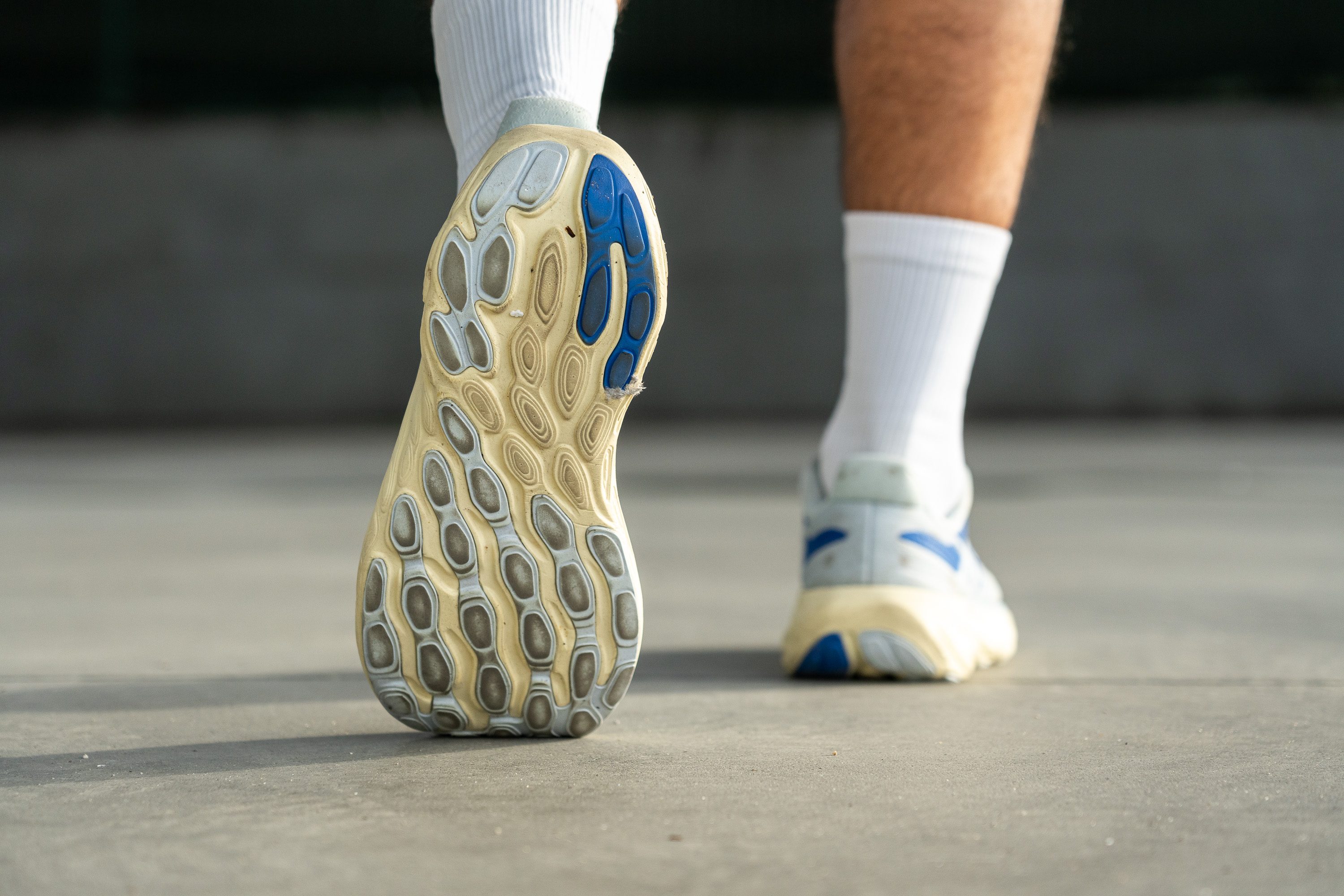
Flexibility / Stiffness
Earlier in our lab review, we found that this shoe offers impressive flexibility in terms of torsion. But how does it perform longitudinally?
Remarkably, it remains more flexible than the average! Our machine needed 13.1N of force to bend it to a 30-degree angle. This level of flexibility makes the shoe not just ideal for running, but also perfect for comfortable all-day wear.
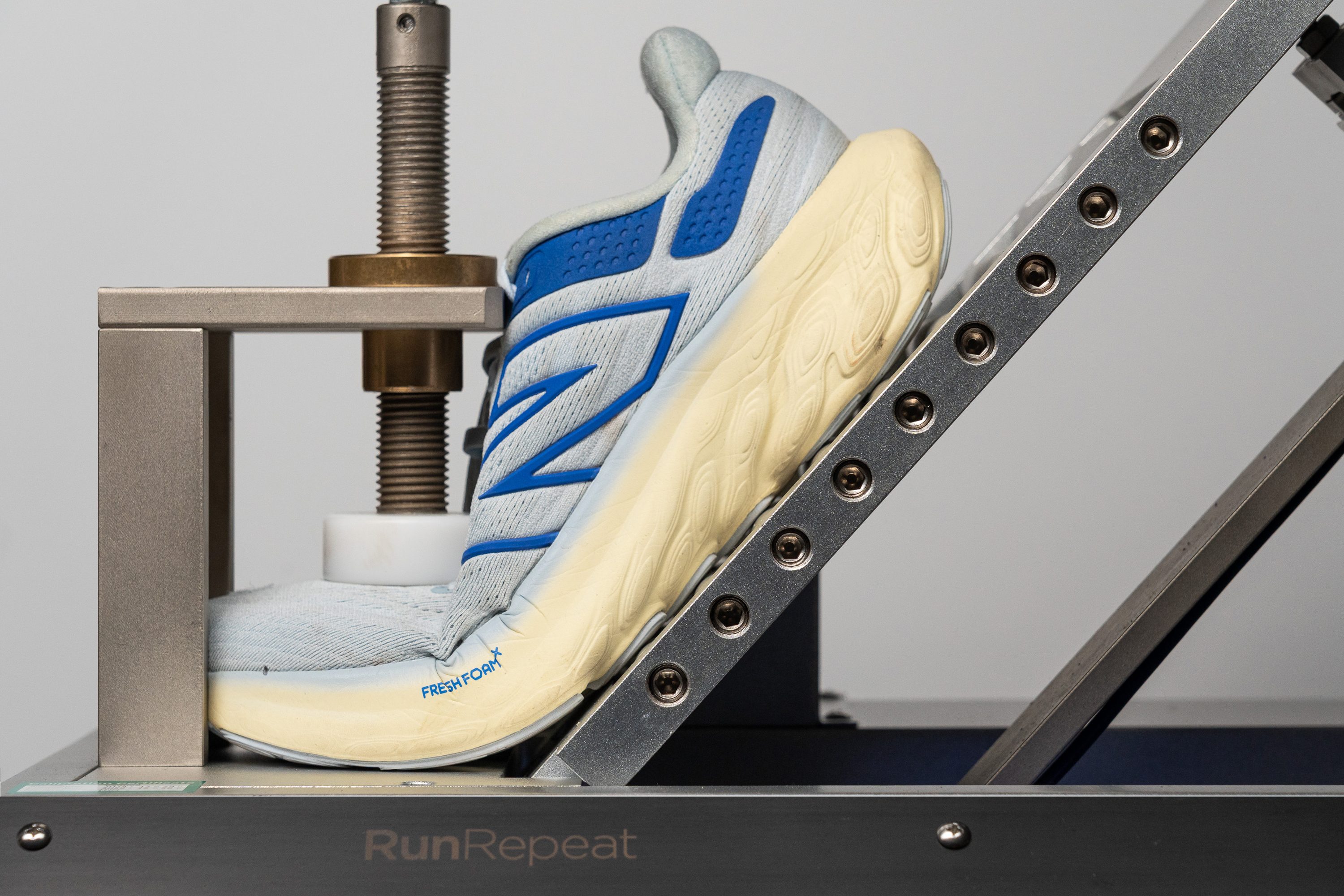
| Fresh Foam X 1080 v13 | 13.1N |
| Average | 15.3N |
Weight
New Balance, once a bit behind in the lightness trend, is now catching up impressively.
The 1080 v13 weighs just 9.3 oz (264g), which is quite reasonable for its size. This shows their solid progress in combining lightweight design with comfort.
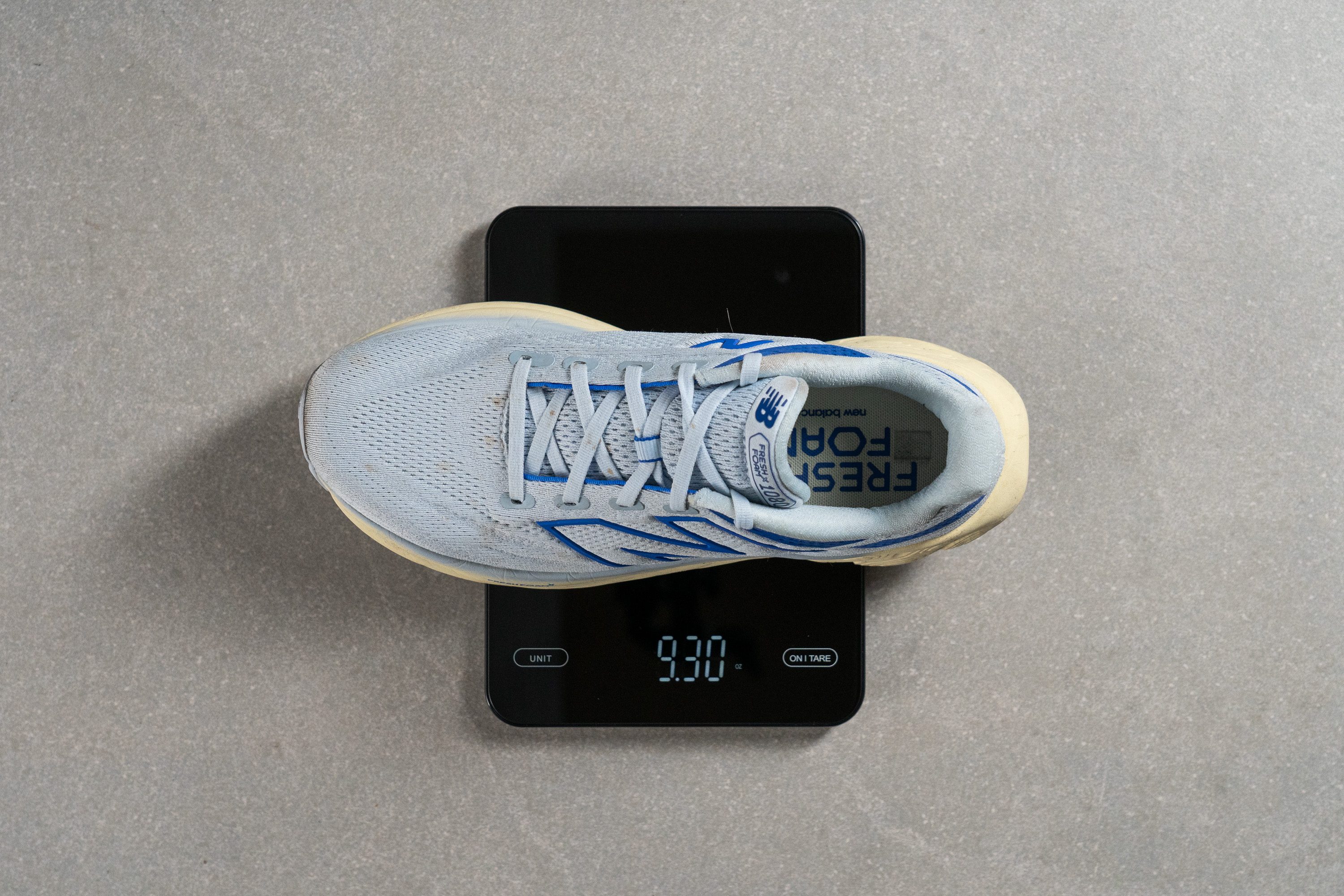
| Fresh Foam X 1080 v13 | 9.3 oz (264g) |
| Average | 9.3 oz (264g) |
Breathability
We must admit that we had our doubts about the 1080 v13 at first. Knit uppers usually don't breathe well, and it seemed like this one might lack airflow.
But we're here to test shoes, not make assumptions—and our smoke test revealed the 1080 v13 has exceptional airflow, a 5/5 in our opinion. Thumbs up to New Balance for creating a knit upper with such outstanding ventilation.
Next, we conducted the light test to discover how New Balance achieved this. The secret? Hundreds of microperforations throughout the upper.
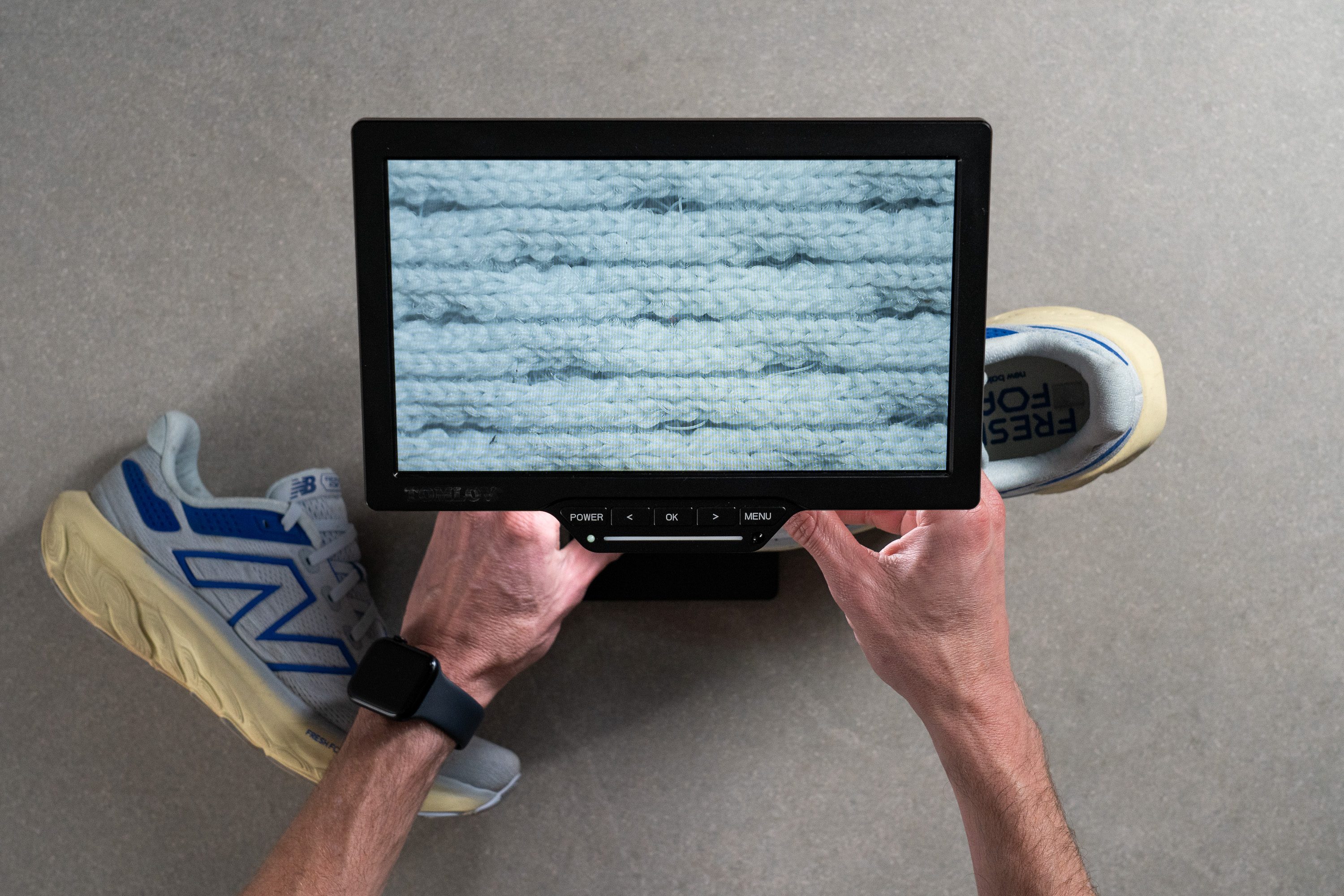
Under our microscope, these tiny holes were visible everywhere. The upper isn't just comfortable; it excels in performance too.
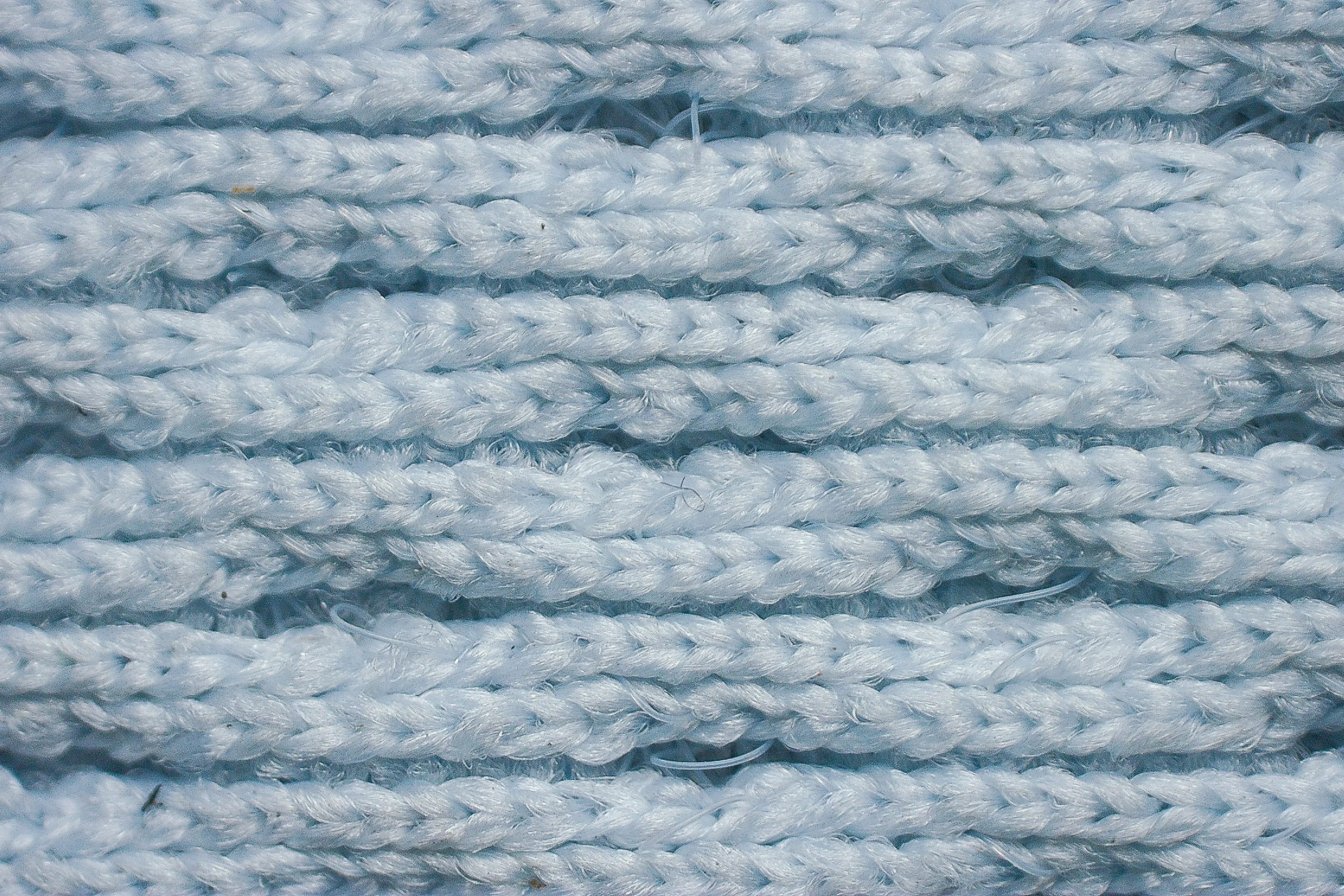
In fact, the upper is packed with pillow-like padding, making the back half of the shoe one of the most comfortable we've ever tested in the lab.
| Fresh Foam X 1080 v13 | 5 |
| Average | 3.7 |
Stability
Lateral stability test
Regarding stability, it's clear that the 1080 v13 is not the most stable daily trainer out there.
Even though it has sidewalls, as we mentioned in a previous test, the foam is just too soft to offer any real stability boost. Therefore, we recommend the 1080 v13 only for neutral runners.
Torsional rigidity
Brands are increasingly creating more rigid shoes in their latest daily trainers, but New Balance is taking a different approach. This makes sense for us—why compromise on comfort when the focus is solely on neutral runners with the 1080?
This is why we recorded a 2/5 in our torsional rigidity test. Yep, it's a step back in terms of stability, but it significantly enhances comfort for everyday runs.
| Fresh Foam X 1080 v13 | 2 |
| Average | 3.5 |
Heel counter stiffness
The heel counter is on the stiffer side, a necessary choice when paired with such cloud-like foam. We rated it a 4/5.
It might slightly bother those with Haglund's deformity or other Achilles area issues, but in our view, most runners should find it comfortable.
| Fresh Foam X 1080 v13 | 4 |
| Average | 2.9 |
Midsole width - forefoot
Now, let's look at the midsole dimensions. From the moment we first held the shoe in the lab, it felt really large, clearly one of the widest daily trainers we've tested.
Measuring the forefoot at its widest point, we got a measurement of 119.5 mm, confirming our initial impressions. Basically, it's a result of the pillow-like midsole, they had no choice!
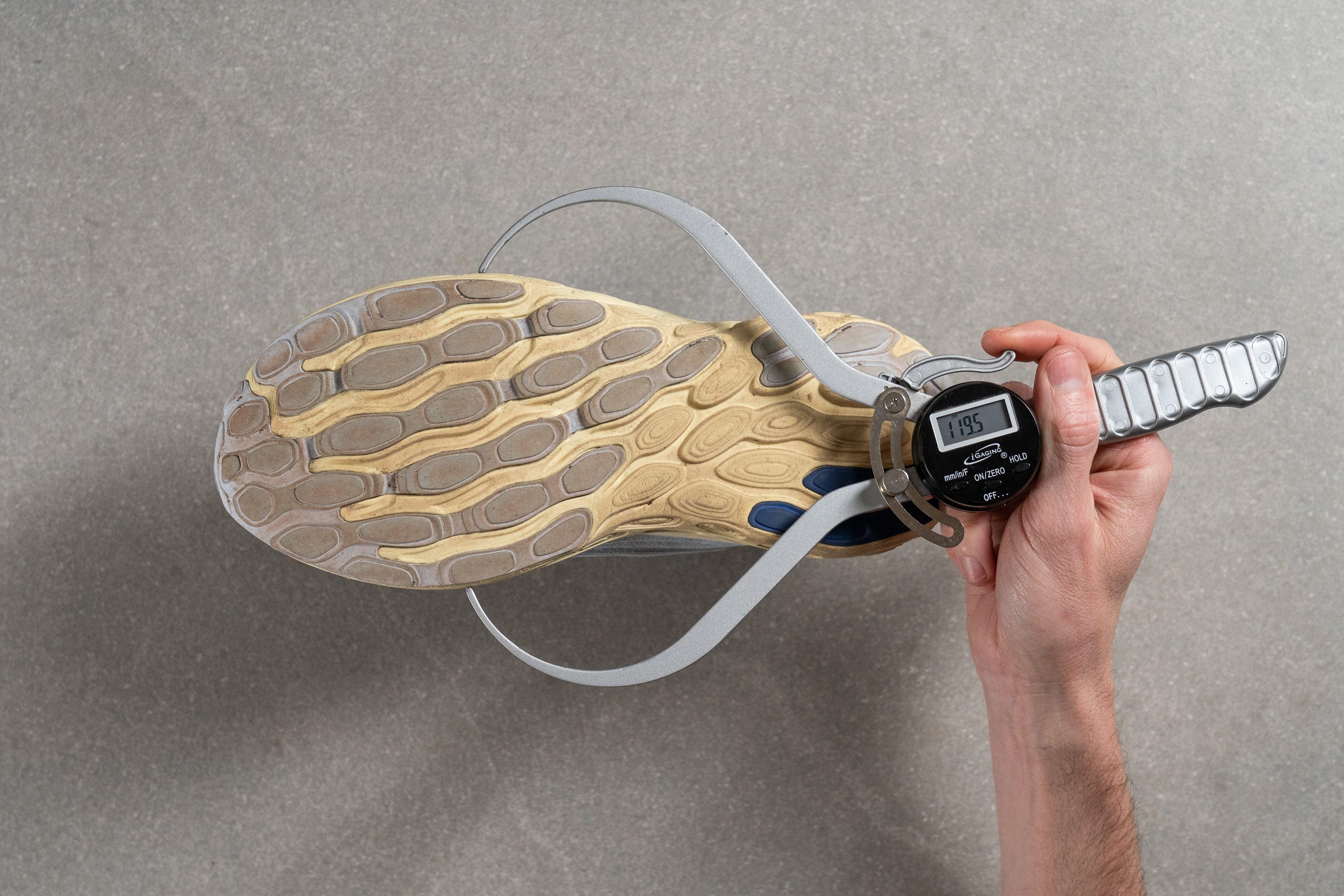
| Fresh Foam X 1080 v13 | 119.5 mm |
| Average | 114.4 mm |
Midsole width - heel
The same design concept is seen in the heel, which is slightly wider compared to most running shoes. Our caliper measured it at 95.9 mm.
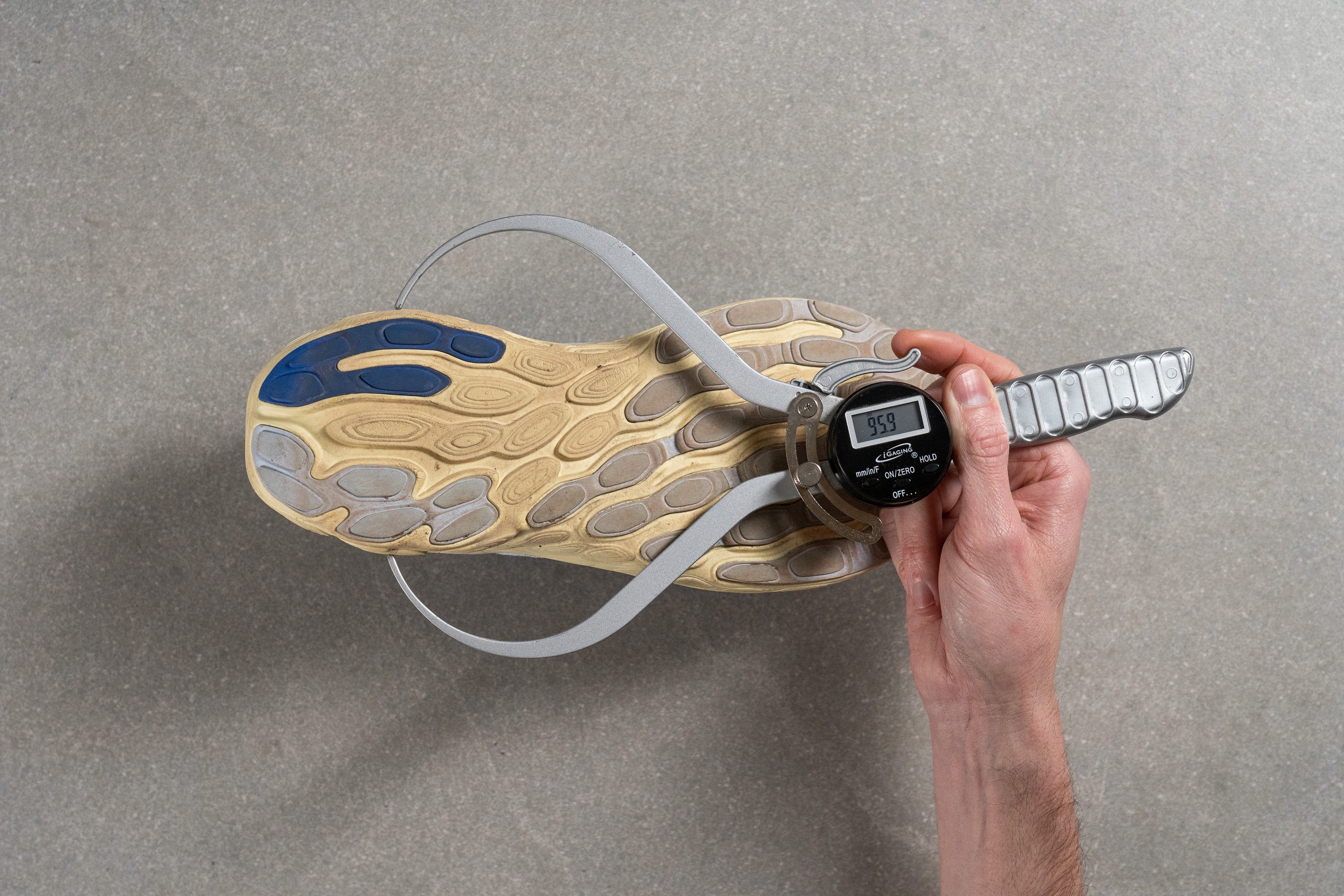
| Fresh Foam X 1080 v13 | 95.9 mm |
| Average | 90.6 mm |
Durability
Toebox durability
One major concern with highly breathable uppers is often reduced durability. So, did the 1080 v13 fall into this trap?
Luckily, the 1080 v13 impressed us with a solid 3/5 score. It's not the top of the charts, but considering the odds, we're quite pleased with this outcome.
The key lies in its double-layered knit. If it were a single layer, we might be looking at a mere 1/5 score.
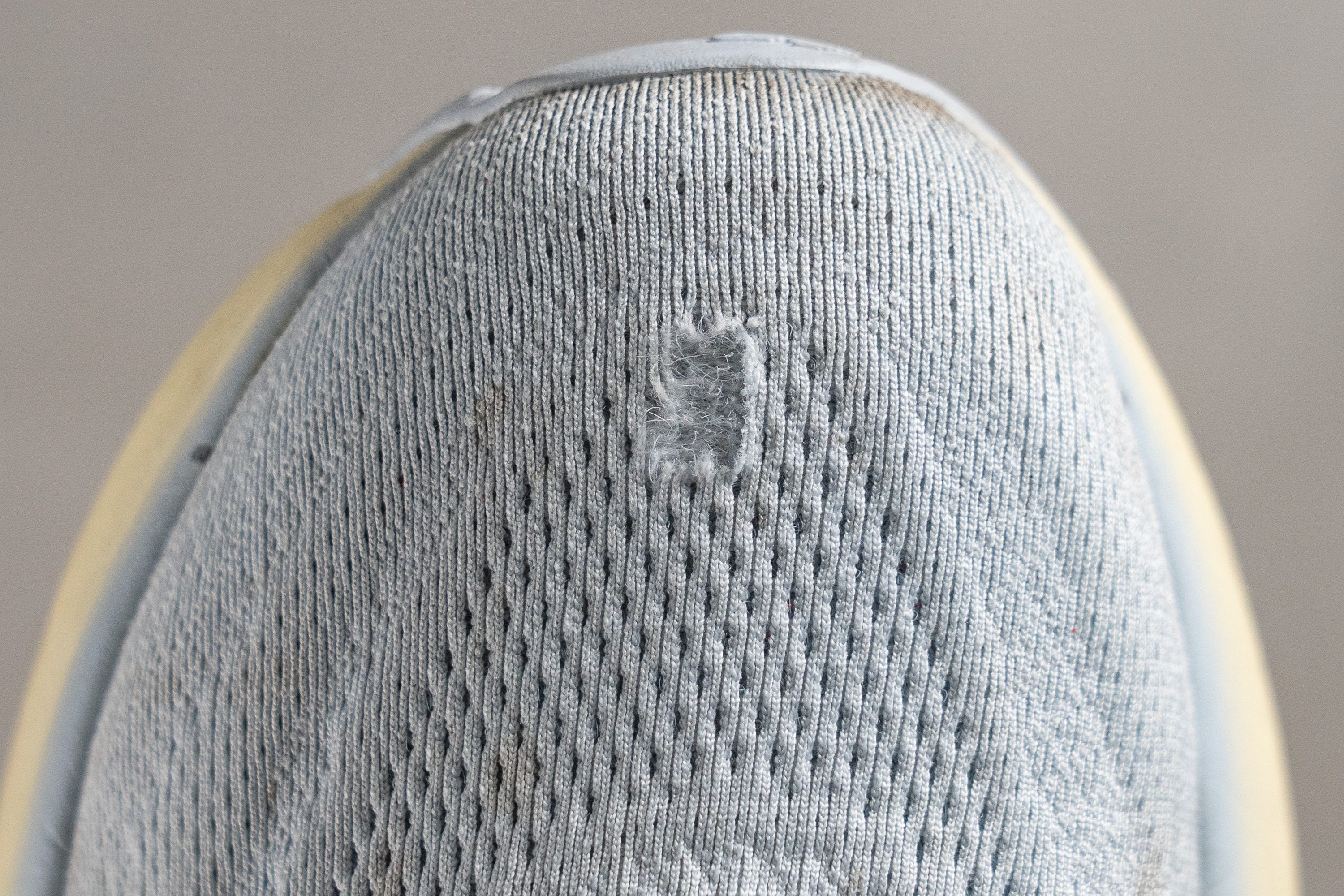
| Fresh Foam X 1080 v13 | 3 |
| Average | 2.6 |
Heel padding durability
Let's dive into our second Dremel test. In this one, we focus on the heel area's resistance, a spot that often shows early wear and tear in many shoes.
After putting it through the Dremel test, we were thrilled to find barely any damage, earning a fantastic 4/5 score. Up to this point, the 1080 v13 is doing an outstanding job here in the lab.
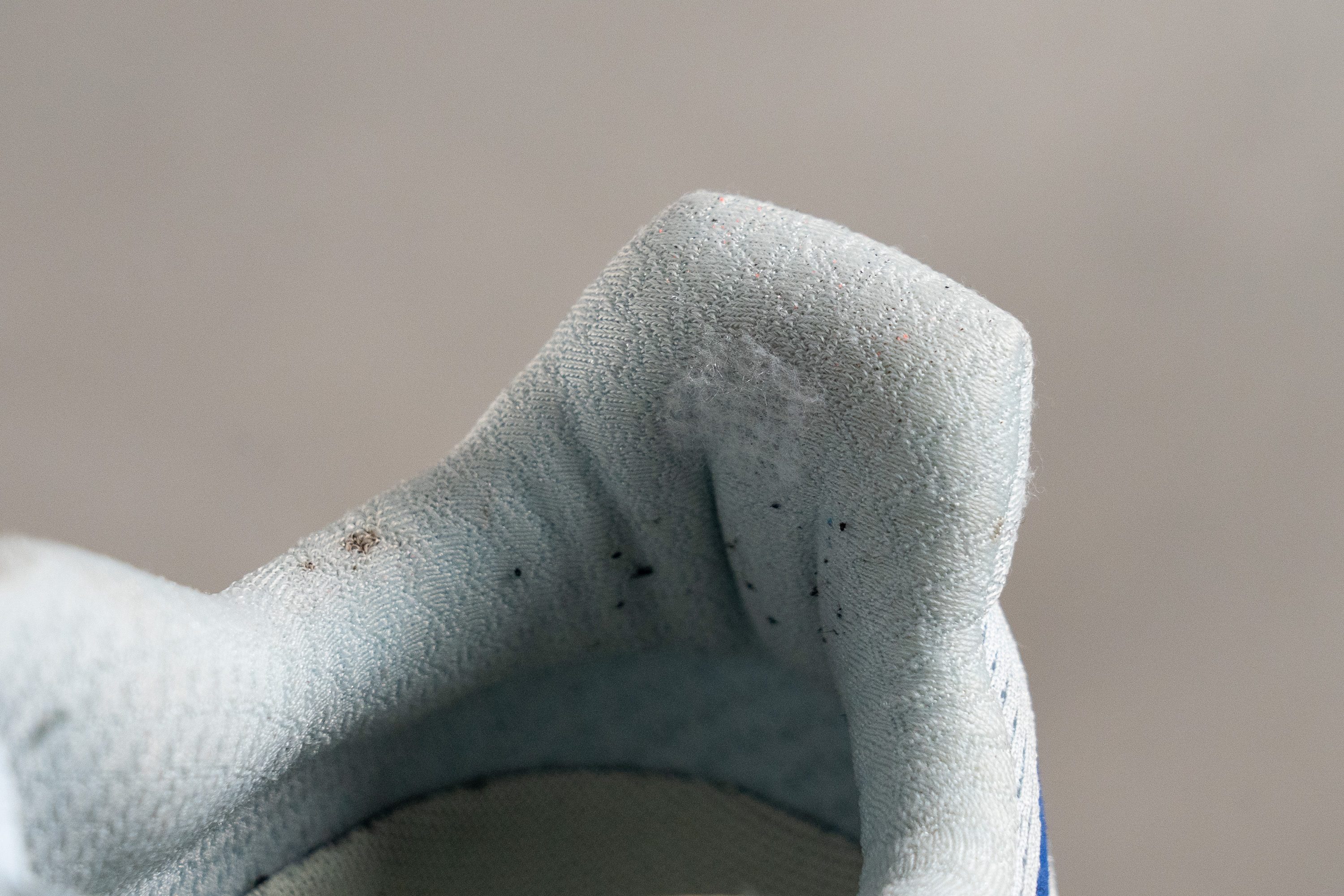
| Fresh Foam X 1080 v13 | 4 |
| Average | 3.4 |
Outsole durability
We then tested how the blown rubber held up under our Dremel, applying more duration and force than we do with the upper, for obvious reasons.
And the results were truly incredible. With just 0.2-mm of wear, you can be confident that this outsole won't wear down prematurely. And the traction, while not the best in the market by any means, it's good enough for road running.
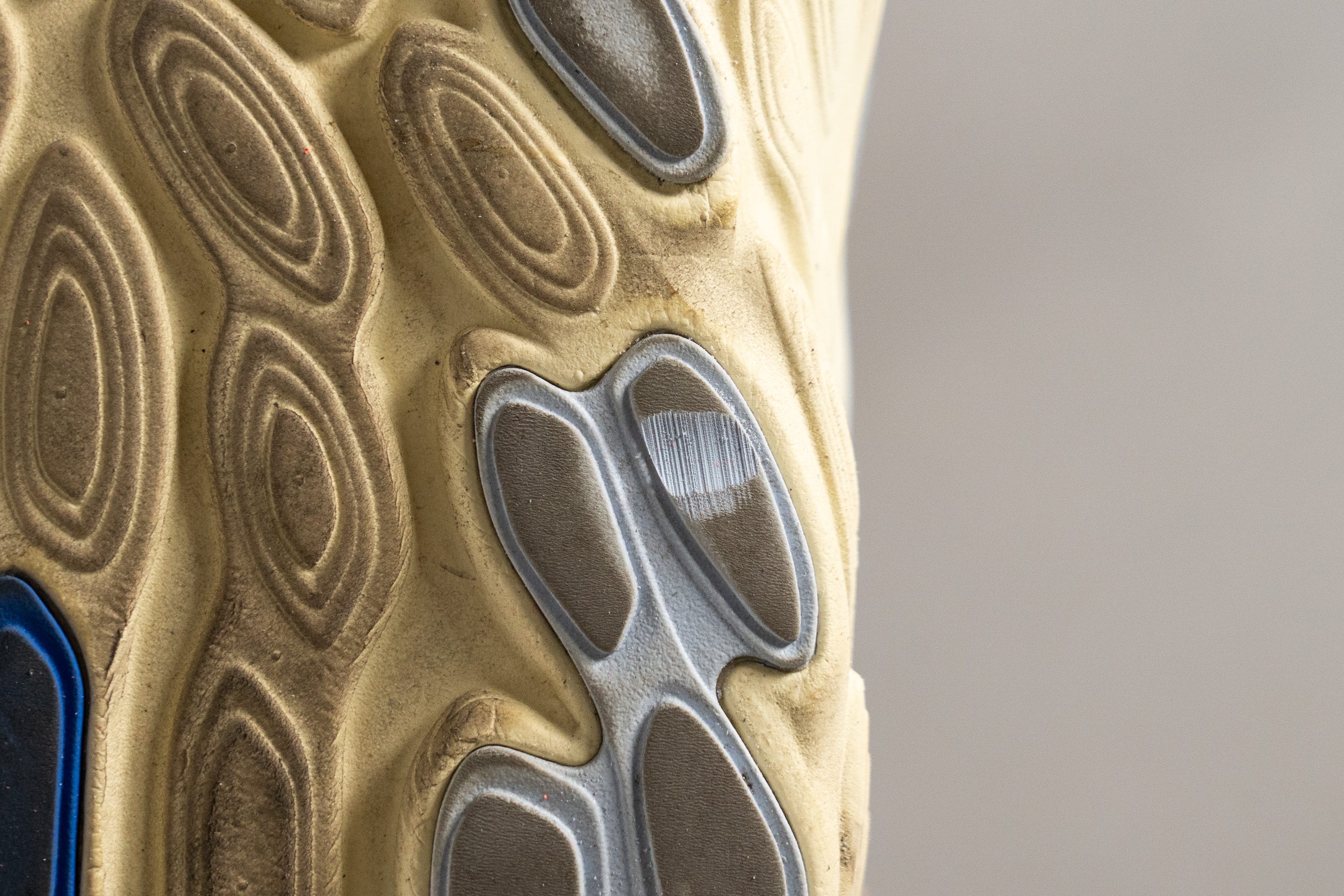
| Fresh Foam X 1080 v13 | 0.2 mm |
| Average | 1.1 mm |
Outsole thickness
The impressive durability of the rubber likely inspired the team at New Balance HQ to design a thinner outsole than usual.
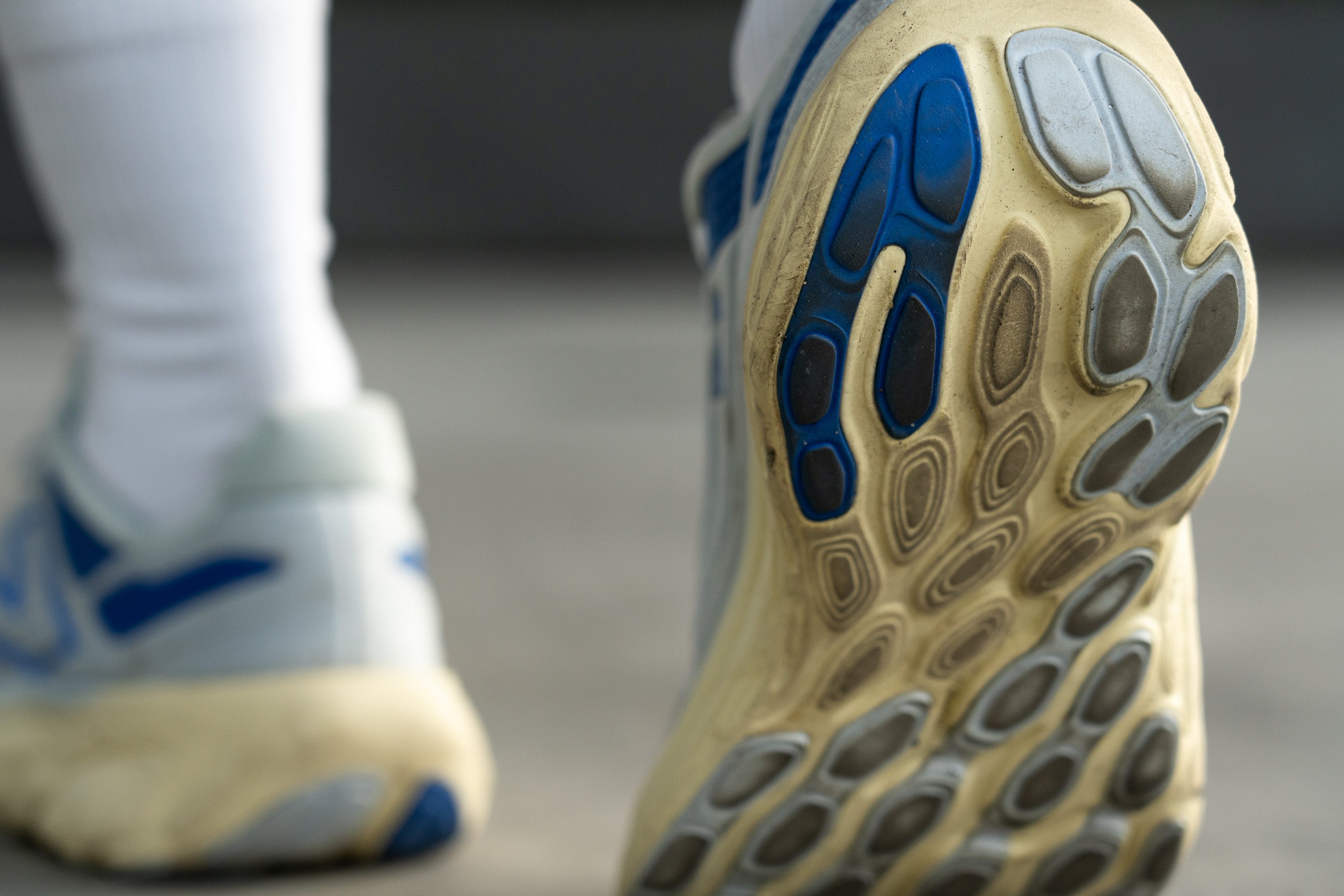
We measured it at 2.5-mm thick, which is below average but more than sufficient for this shoe. This design choice also helps keep the weight as low as possible.
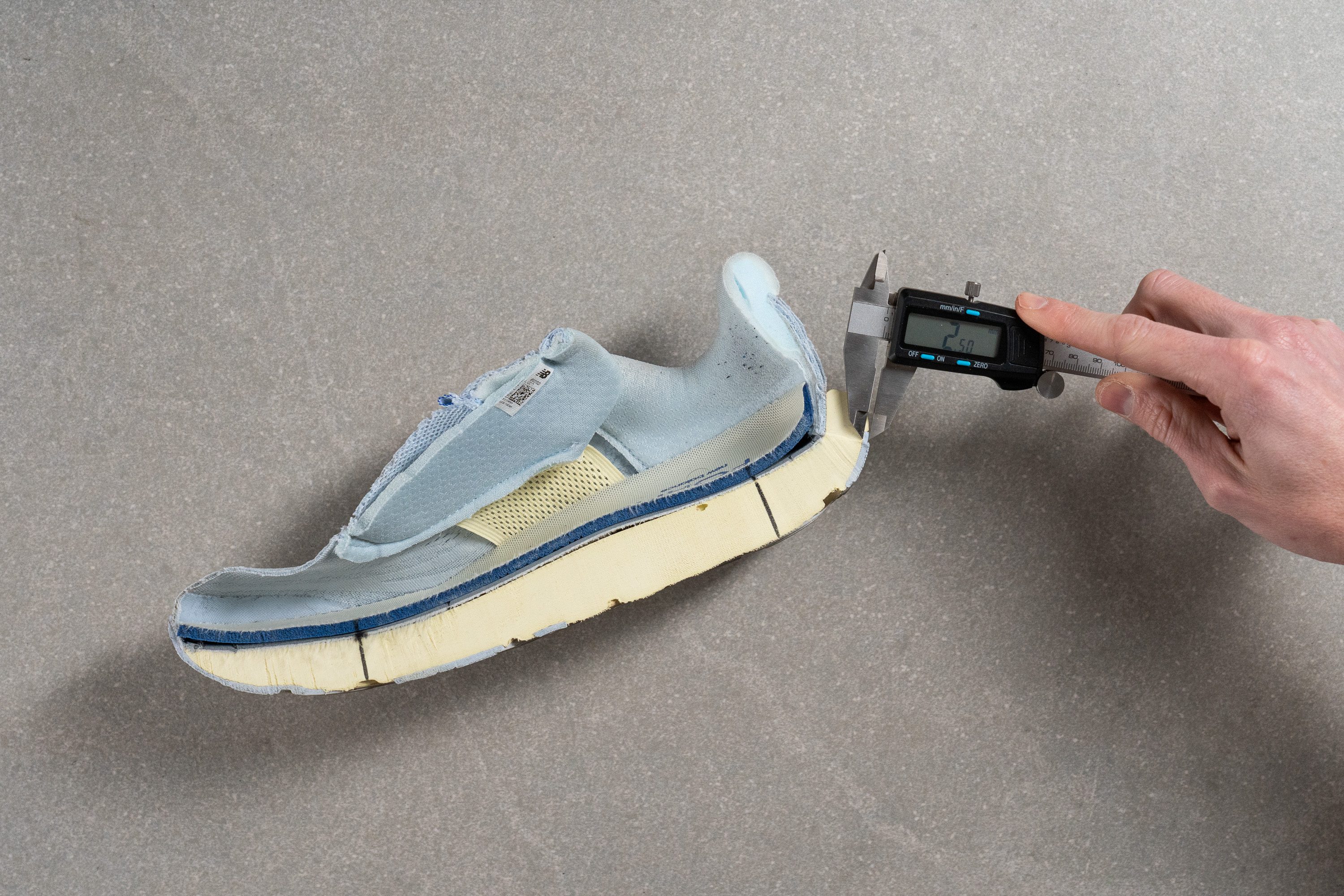
| Fresh Foam X 1080 v13 | 2.5 mm |
| Average | 3.2 mm |
Misc
Insole thickness
The Ortholite insole, at 5 mm, is incredibly soft. It gave us a preview of the comfort we can expect from the midsole...
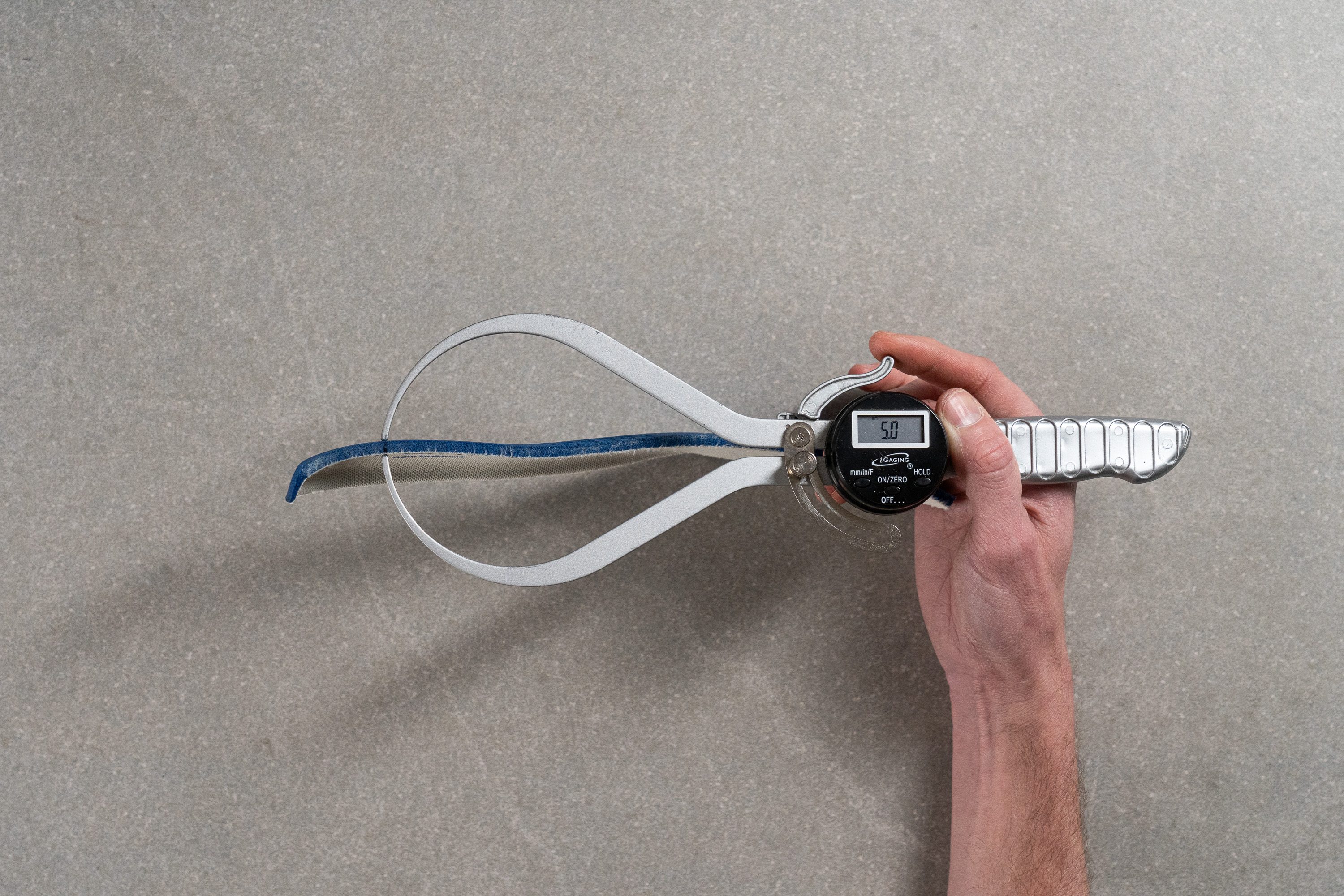
| Fresh Foam X 1080 v13 | 5.0 mm |
| Average | 4.5 mm |
Removable insole
The 1080 v13 features a standard insole that's easy to remove and replace if necessary. And thanks to the shoe's average dimensions, slipping in third-party insoles is not a problem at all.
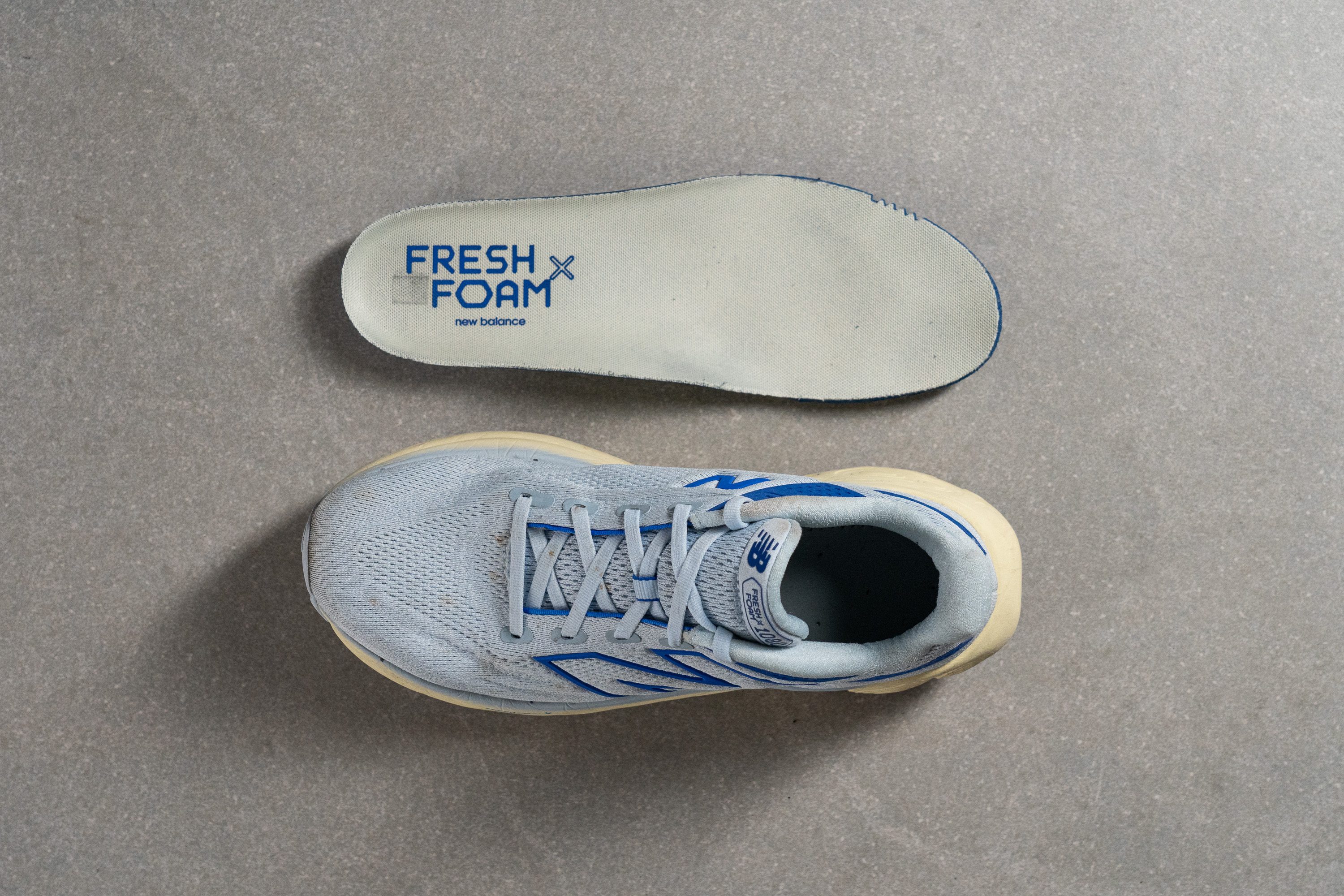
| Fresh Foam X 1080 v13 | Yes |
Midsole softness in cold (%)
Even under cold temperatures, the foam remains ultra-soft at 12.9 HA, though it becomes 28.8% firmer.
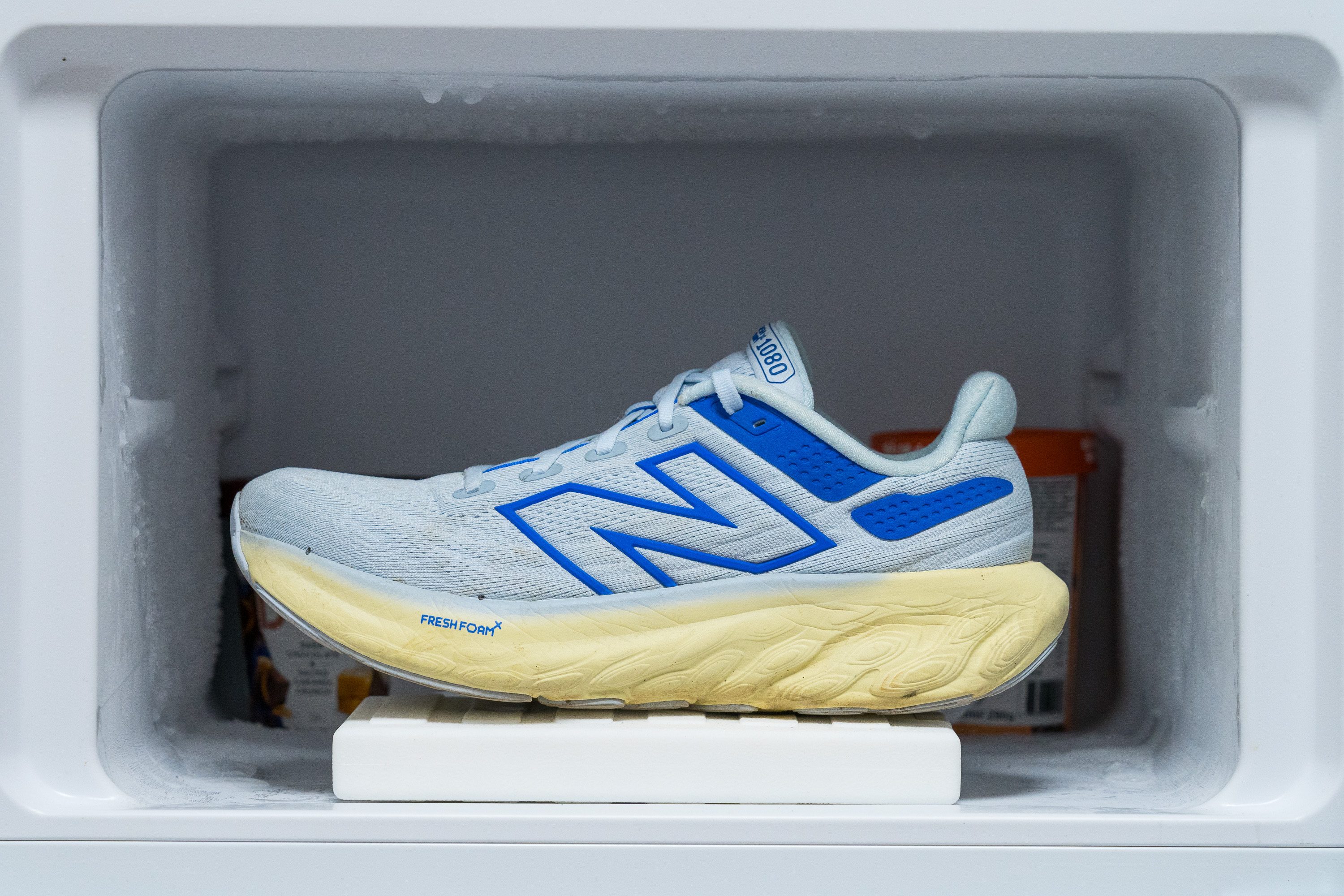
| Fresh Foam X 1080 v13 | 29% |
| Average | 24% |
Reflective elements
We initially worried that the 1080 v13 might join other brands in cutting costs on often-overlooked features. However, New Balance pleasantly surprised us by maintaining its reflective elements, and we absolutely love it.
| Fresh Foam X 1080 v13 | Yes |
Tongue padding
The tongue of the shoe, at 7.3 mm, is padded and very comfortable. Yet, we think New Balance could trim it down a bit, maybe to around 4-6 mm. This would save some weight while still maintaining plenty of comfort for a daily workhorse.
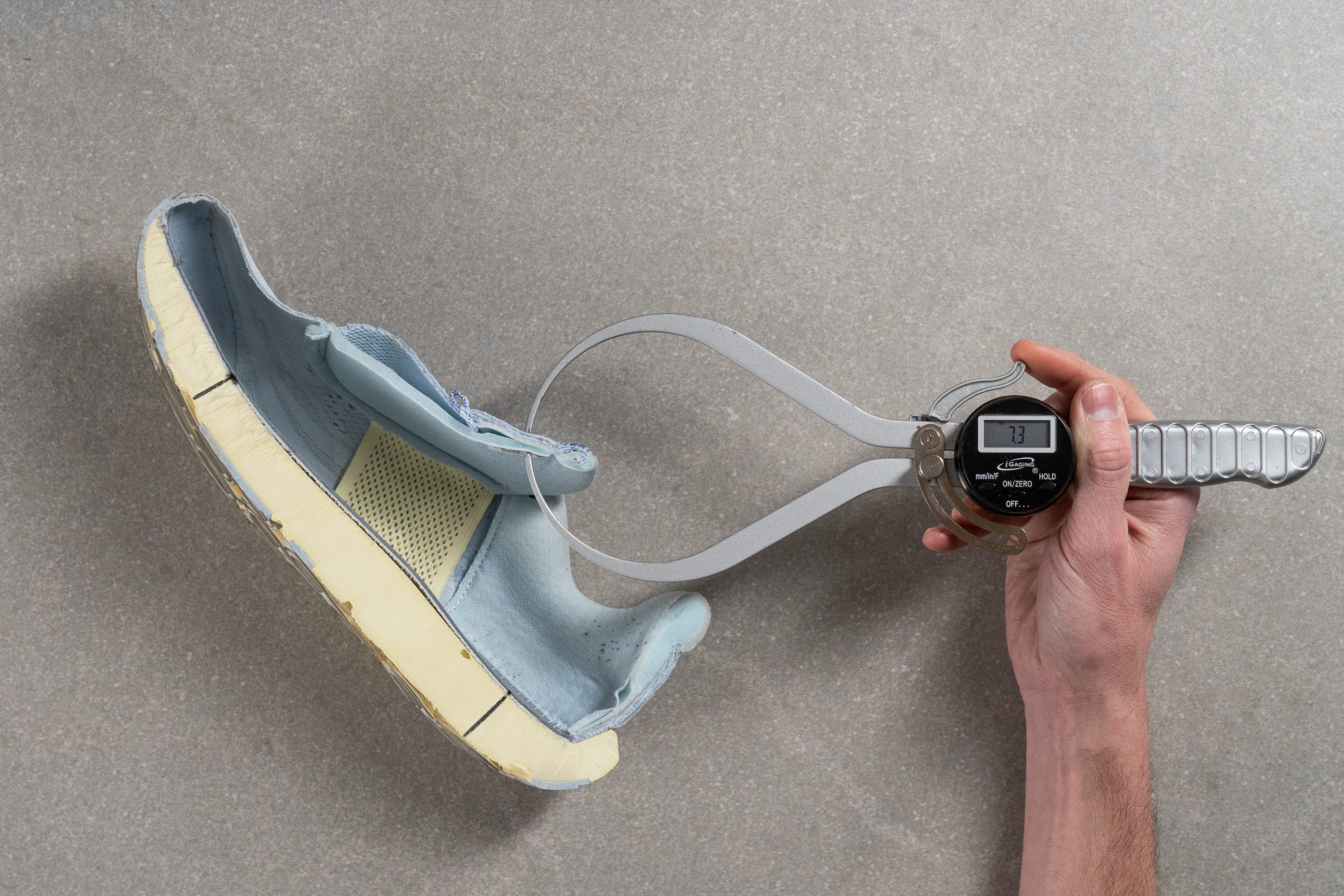
| Fresh Foam X 1080 v13 | 7.3 mm |
| Average | 5.7 mm |
Tongue: gusset type
We found the tongue of the 1080 v13 is semi-gusseted, offering an excellent lockdown. It's impressively comfortable without being too tight or intrusive. We believe this choice is perfect for this shoe.
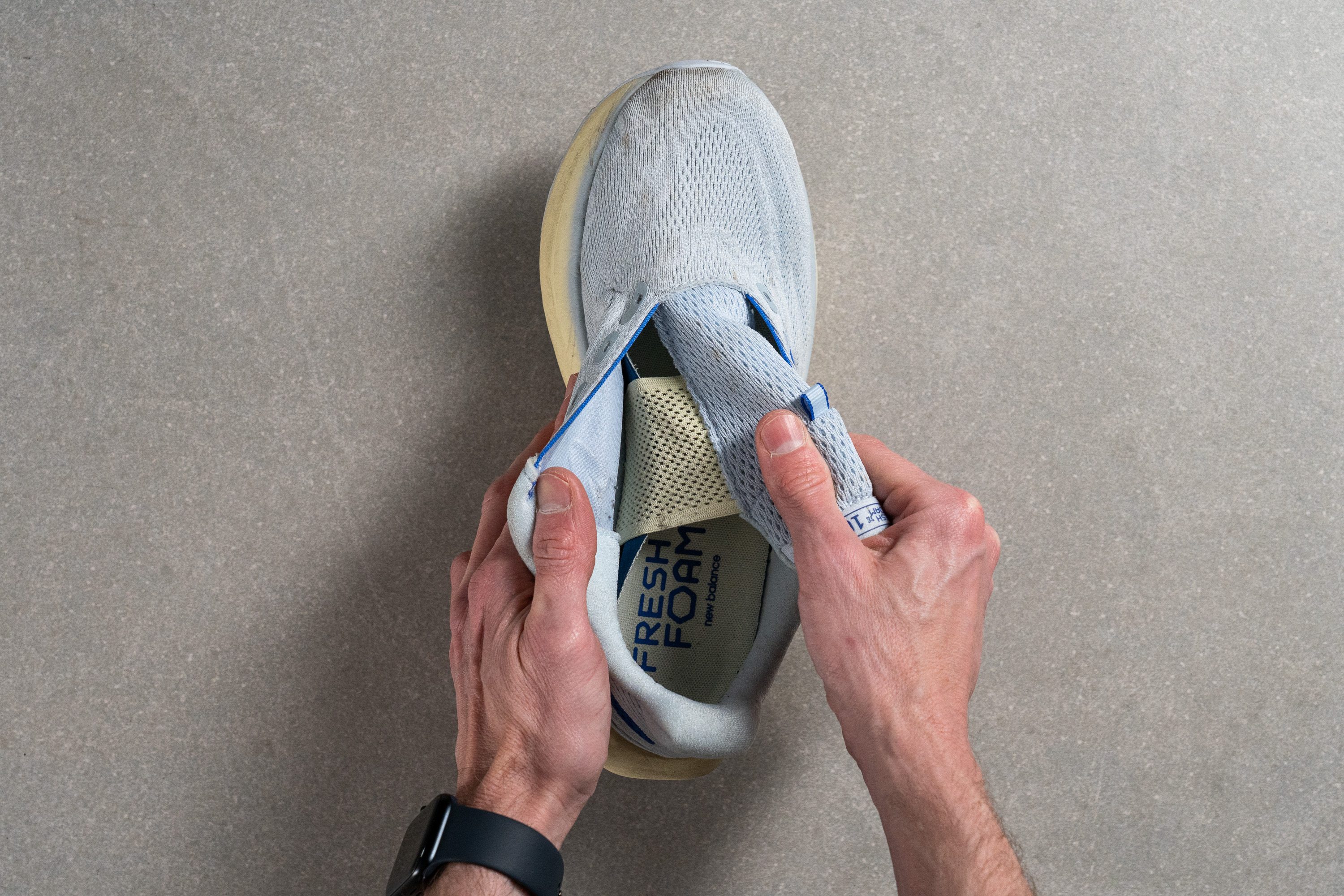
| Fresh Foam X 1080 v13 | Both sides (semi) |
Heel tab
The v13 doesn't have a heel tab, but it does have a more padded area around the heel. This makes it easier to grab the heel when we need to.
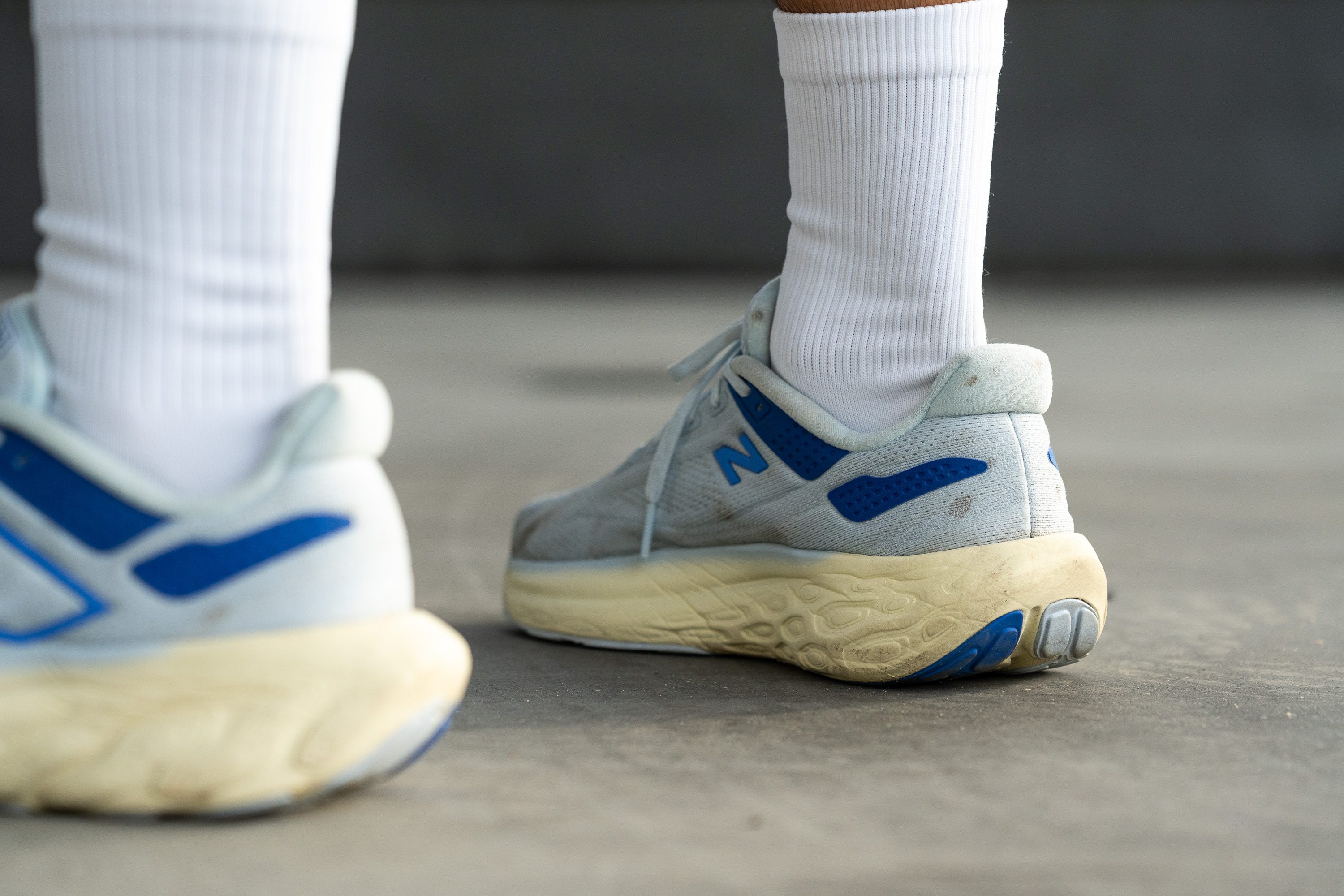
| Fresh Foam X 1080 v13 | None |

